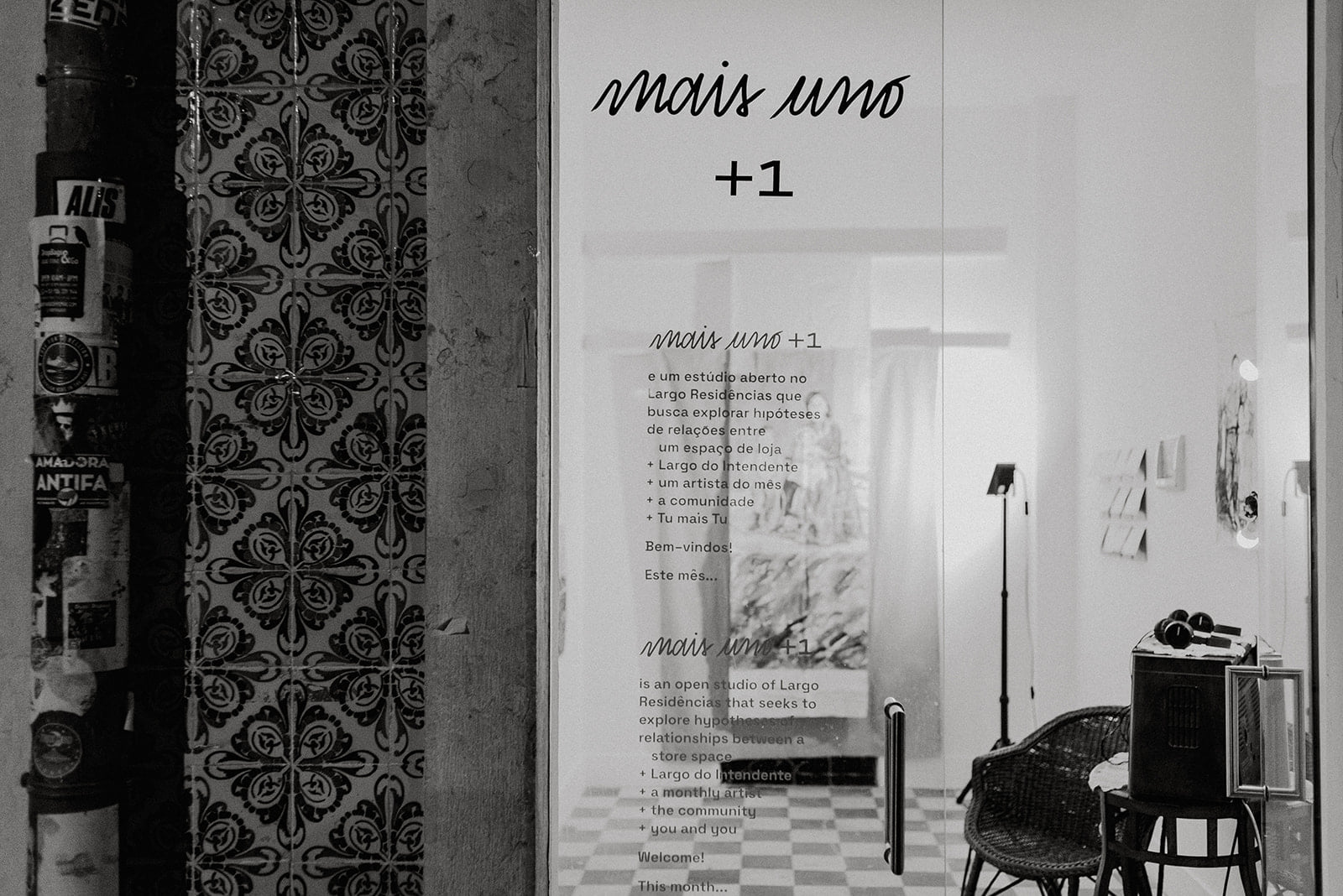
Project-space
mais uno +1 is a project-space at Largo Residências that seeks to explore hypothesis of relationships between
a space
+ Largo do Intendente
+ artist of the month
+ the community
+ you
— project duration
2021 - 2022
2021 - 2022
— project location
Largo do Intendente (Lisbon)
Largo do Intendente (Lisbon)
— curators
Angela Fellowes
Inês Nêves
Angela Fellowes
Inês Nêves
— partner
LARGO Residências
LARGO Residências
— artists
Angela Fellowes (Nov 2021)
Lígia Fernandes (Jan 2022)
Nicole Sánchez (Fev 2022)
mais uno +1 (Mar 2022)
Angela Fellowes (Nov 2021)
Lígia Fernandes (Jan 2022)
Nicole Sánchez (Fev 2022)
mais uno +1 (Mar 2022)
The project mais uno +1 contemplates the definition and management of an exhibition space, stemming from the interpretation of the curatorial exercise's as:
- A shared act that is generated or is executed by more than one person, a way of testing hypothesis of relationships;
- An artistic act that establishes a way of exploring and creating collective practices;
- An act of premeditated spontaneity that prepares and facilitates the necessary conditions to the occurrence of organic encounters and events through artistic expression.
Through this perspectice, the construction of the space’s rationale, identity, communication and operation becomes an act of common creation that functions as a territory for reunion and mediation. Thus, the exhibition space adopts the nature of project-space. In a project-space the artistic practice is process-based: comented, presented, considered, tried and co-produced, seeking collaborative and/or participatory, and interdisciplinary processes.
With emphasis on the exploration of the involved actors’ different dynamics and energies, and considering that the collective is comprised of ones (1+1+1+1+...), which is on its own one as well, the the project-space mais uno + 1 (in english, more united +1) operates in a relational and incremental way that seeks to activate its potential for social and urban restoration and local artistic revitalization one link at a time.
(project-space) = mais uno
mais uno + 1 (actor* A) = uno (united)
mais uno + 1 + 1 (actor* B) = uno (united)
mais uno + 1 + 1 + 1 (actor* C) = uno (united)
* Someone/something able to cause effect which can
be composed by one or more. Example: neighbors, artists,
residents, workers from the institution, students, etc.
— projects
Angela Fellowes
"Our Memory"
A collection of memories from Largo do Intendente in Lisbon drawn on the Café's placemats.

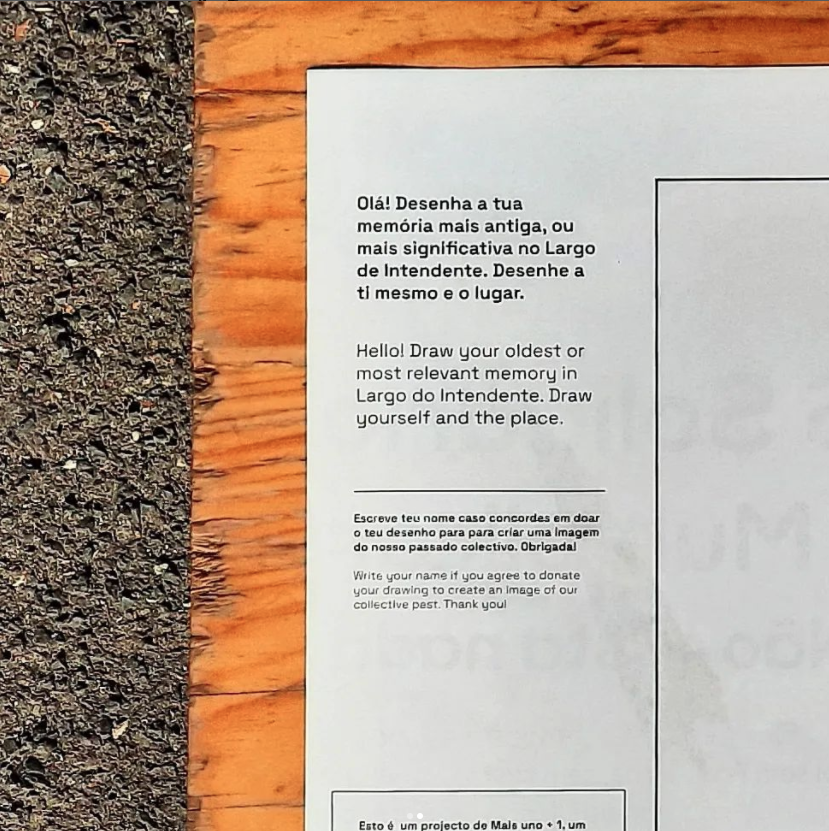







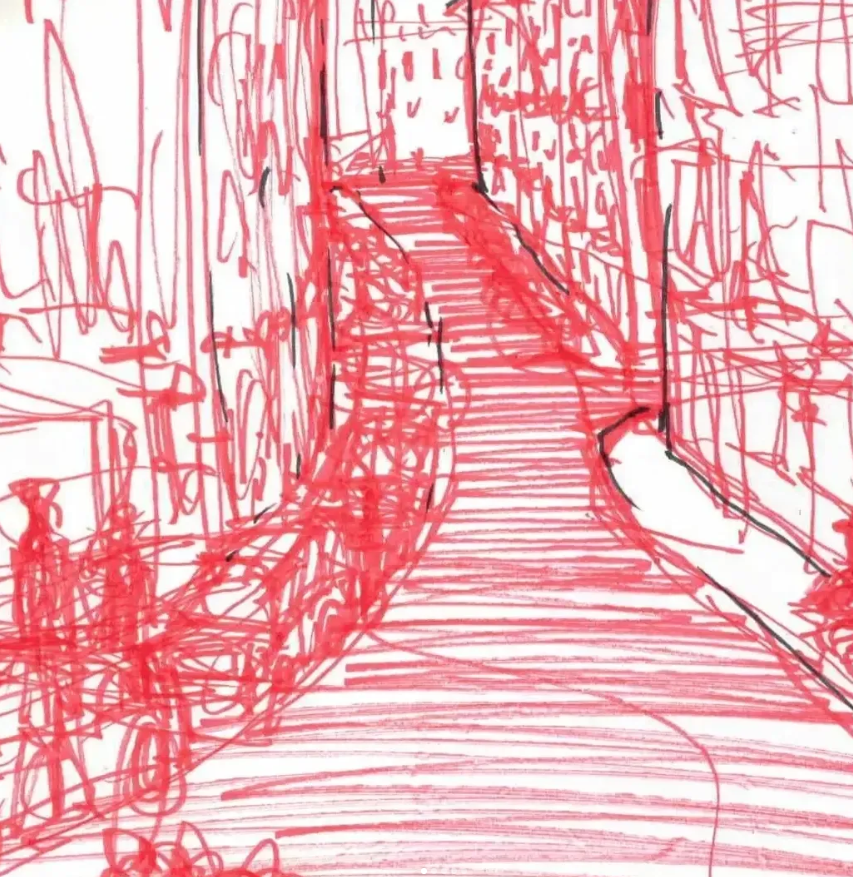
Lígia Fernandes "grandma did not tell me"
Granma did not tell me about her childhood, about what it was like to be born and live in Portugal.
Granma did not tell me that she saves her first love’s picture in an album, but does not show it to anyone.
Granma did not tell me she escaped from war with the money she could hide inside her vagina.
Granma did not tell me about the day she stopped playing the piano.
Granma did not tell me anything about how grandpa went away and left her with my mom.
Granma did not tell me about the prostitution of cabaret and magazine artists.
Granma did not tell me about the black victims from the ex-Colonies’ independency.
Granma did not tell me that rich girls could not go to school.
Granma did not tell me about her trip through the african continent.
Granma did not tell me about her childhood job.
Granma did not tell me about her career as a singer and radio artist.
Granma did not tell me about grandpa’s lovers.
Granma did not tell me about great–great-grandpa, who was from São Tomé e Príncipe and could have been a slave trafficker.
Granma did not tell me about her impossible passion for a man of another social class.
Granma did not tell me about great-grandpa, who was a jazz musician, and who she only met while he was asleep.
Granma did not tell me why she sent mom to boarding school.
Granma did not tell me about the 25th of April.
Granma did not tell me about her childhood at the Tivoli theatre.
Granma did not tell me about this Lisbon, which is made of so many layers.
Granma did not tell me that I was the first woman of the family to be born in Freedom.
That I discovered, after I listened to her.
Text: Lígia Fernandes, based in true testimonies collected with the users of the N. Sra. dos Anjos day center between May and September 2020.
Granma did not tell me that she saves her first love’s picture in an album, but does not show it to anyone.
Granma did not tell me she escaped from war with the money she could hide inside her vagina.
Granma did not tell me about the day she stopped playing the piano.
Granma did not tell me anything about how grandpa went away and left her with my mom.
Granma did not tell me about the prostitution of cabaret and magazine artists.
Granma did not tell me about the black victims from the ex-Colonies’ independency.
Granma did not tell me that rich girls could not go to school.
Granma did not tell me about her trip through the african continent.
Granma did not tell me about her childhood job.
Granma did not tell me about her career as a singer and radio artist.
Granma did not tell me about grandpa’s lovers.
Granma did not tell me about great–great-grandpa, who was from São Tomé e Príncipe and could have been a slave trafficker.
Granma did not tell me about her impossible passion for a man of another social class.
Granma did not tell me about great-grandpa, who was a jazz musician, and who she only met while he was asleep.
Granma did not tell me why she sent mom to boarding school.
Granma did not tell me about the 25th of April.
Granma did not tell me about her childhood at the Tivoli theatre.
Granma did not tell me about this Lisbon, which is made of so many layers.
Granma did not tell me that I was the first woman of the family to be born in Freedom.
That I discovered, after I listened to her.
Text: Lígia Fernandes, based in true testimonies collected with the users of the N. Sra. dos Anjos day center between May and September 2020.
Since March 2020 with the triggering of the COVID-19 pandemic, most community spaces in Lisbon closed down — between them, the Nossa Senhora dos Anjos day center. For many of their users, the day center activities were the only moments of social interaction in their quotidian. The pandemic revealed itself especially difficult for the elder generation, which found itself confined at home in situations of extreme solitude. It was in this context that I received an urgent invitation from LARGO Residências to develop an artistic initiative with the Nossa Senhora dos Anjos day center.
The project “family portraits” was part of that initiative. It was the first one I undertook after the occurrence of the pandemic. There were several weeks of collecting images and life stories from the different users. The collection consisted of visits to their houses and a conversation that ran to the rhythm of the family album’s pages being turned. Life stories with many pauses and resumptions. From this initiative, the project “grandma did not tell me” was born: a collection-in-progress from the stories and life’s images of the oldest generation of women in different parts of the world. I re-construct, through drawing, a feminine narrative of the story that remained unwritten. In January 2022, I return to the images collected at the space “mais uno +1.
The project “family portraits” was part of that initiative. It was the first one I undertook after the occurrence of the pandemic. There were several weeks of collecting images and life stories from the different users. The collection consisted of visits to their houses and a conversation that ran to the rhythm of the family album’s pages being turned. Life stories with many pauses and resumptions. From this initiative, the project “grandma did not tell me” was born: a collection-in-progress from the stories and life’s images of the oldest generation of women in different parts of the world. I re-construct, through drawing, a feminine narrative of the story that remained unwritten. In January 2022, I return to the images collected at the space “mais uno +1.
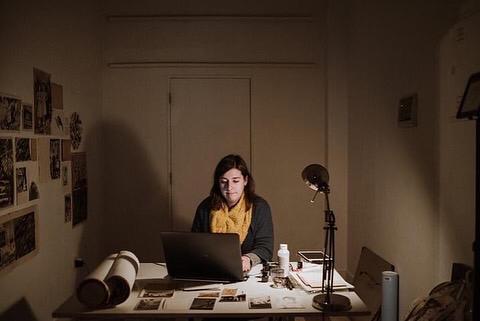
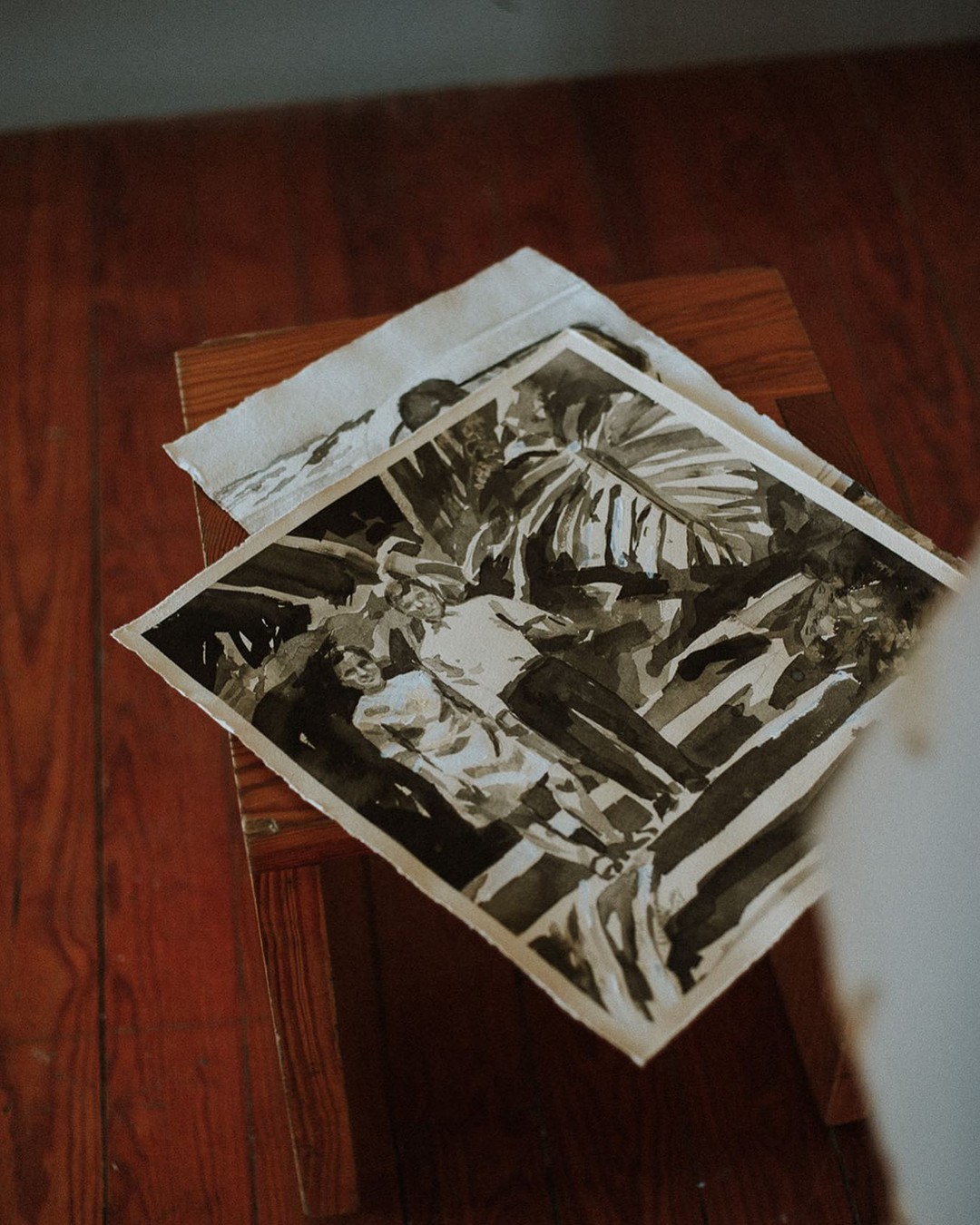
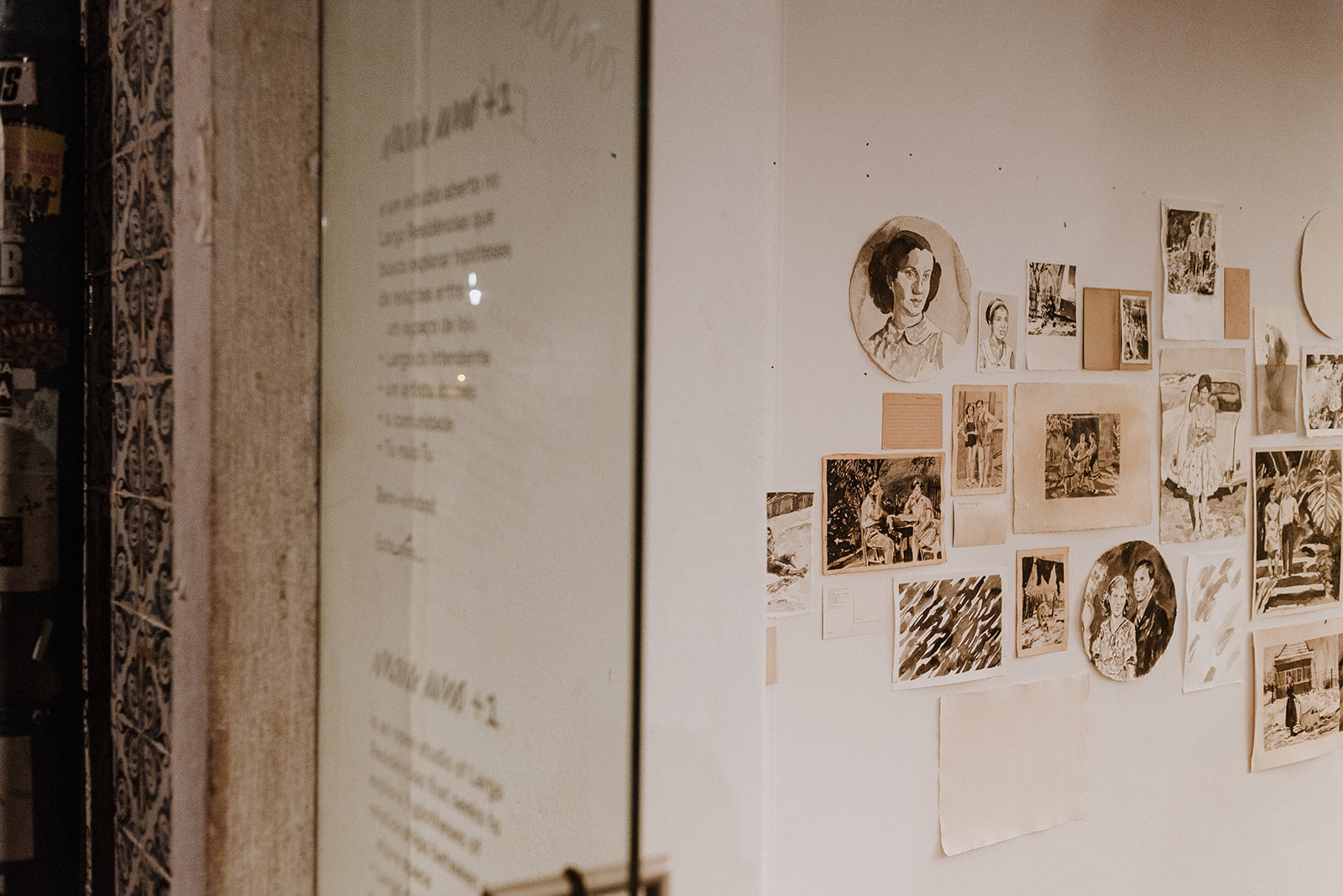
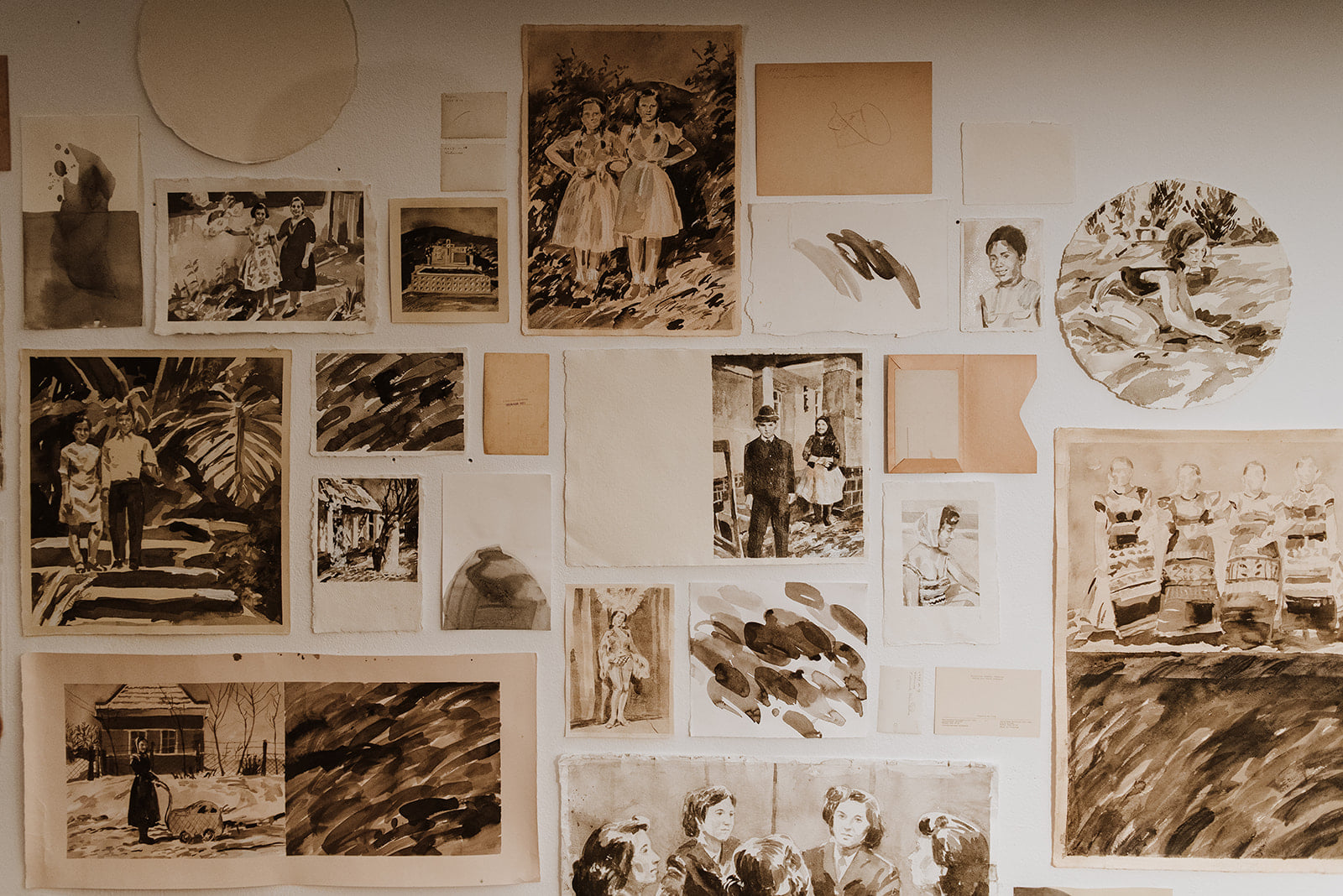

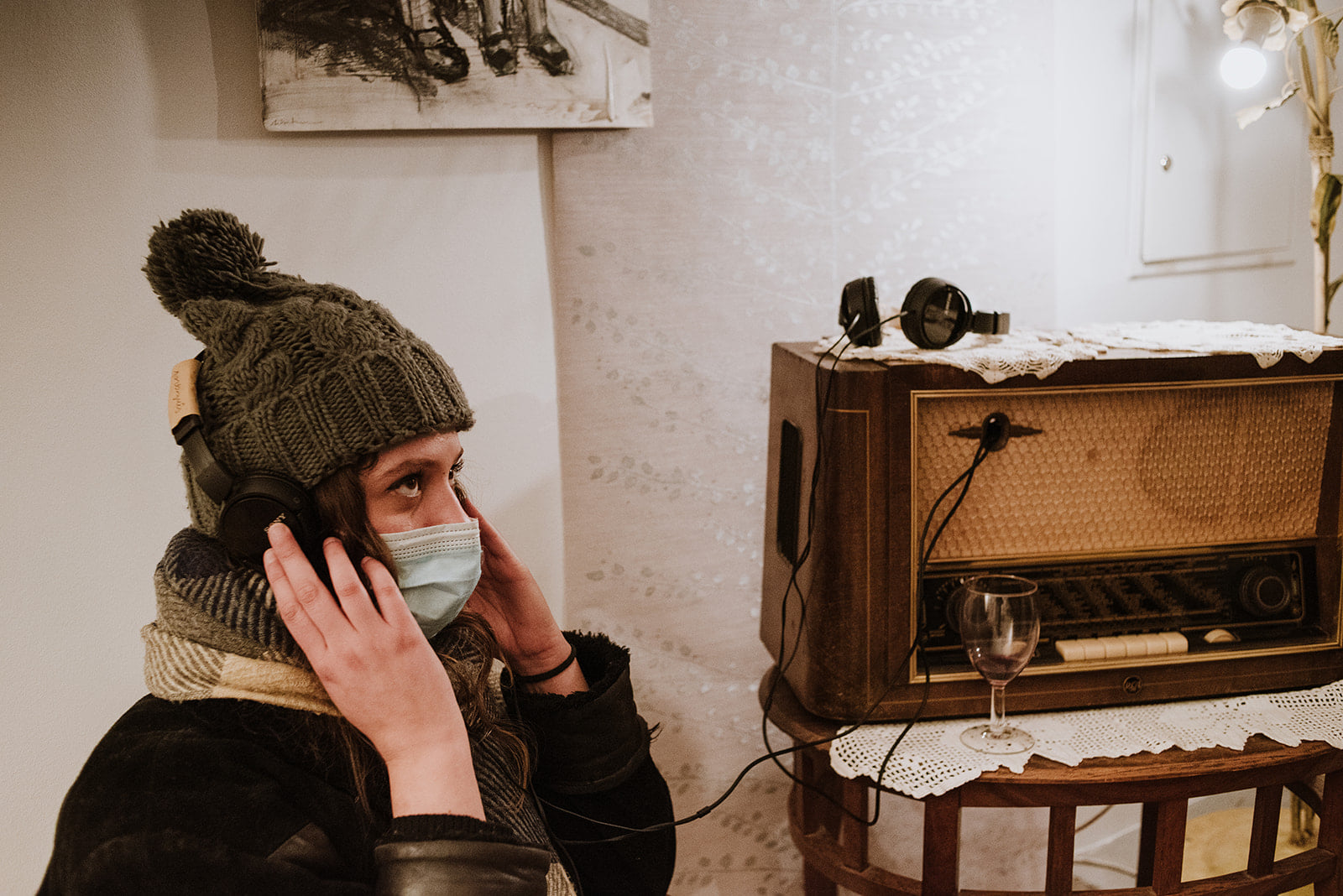
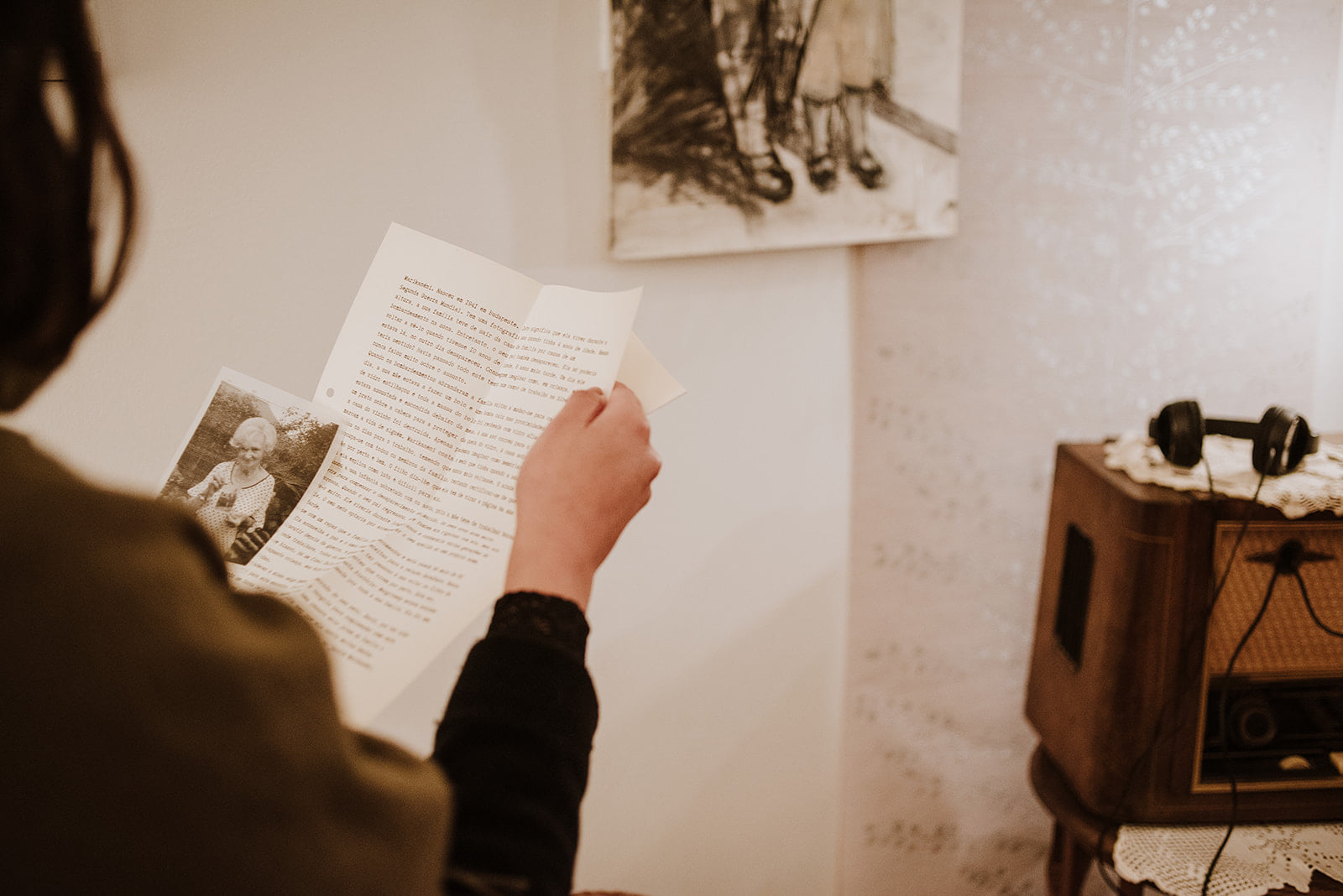
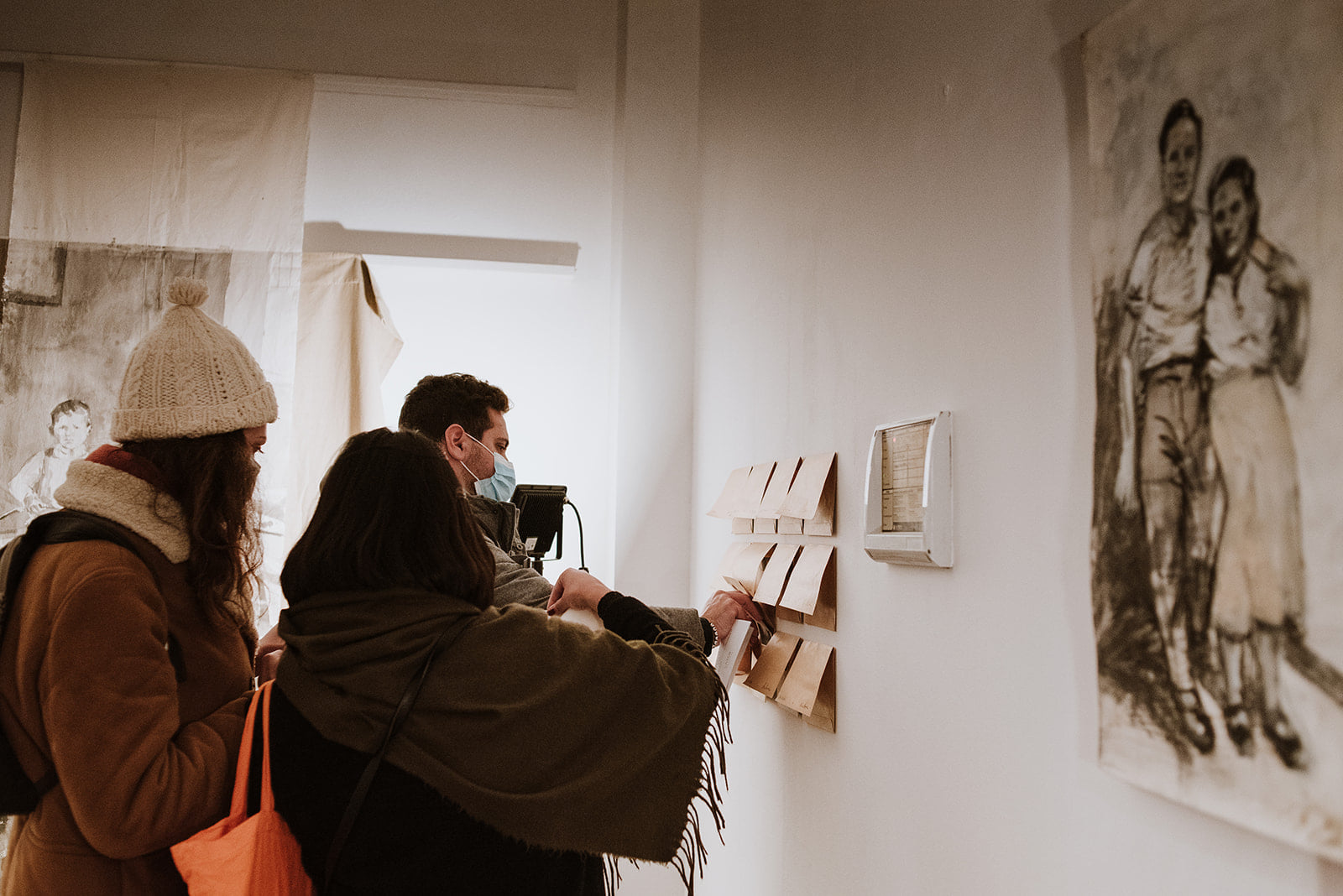
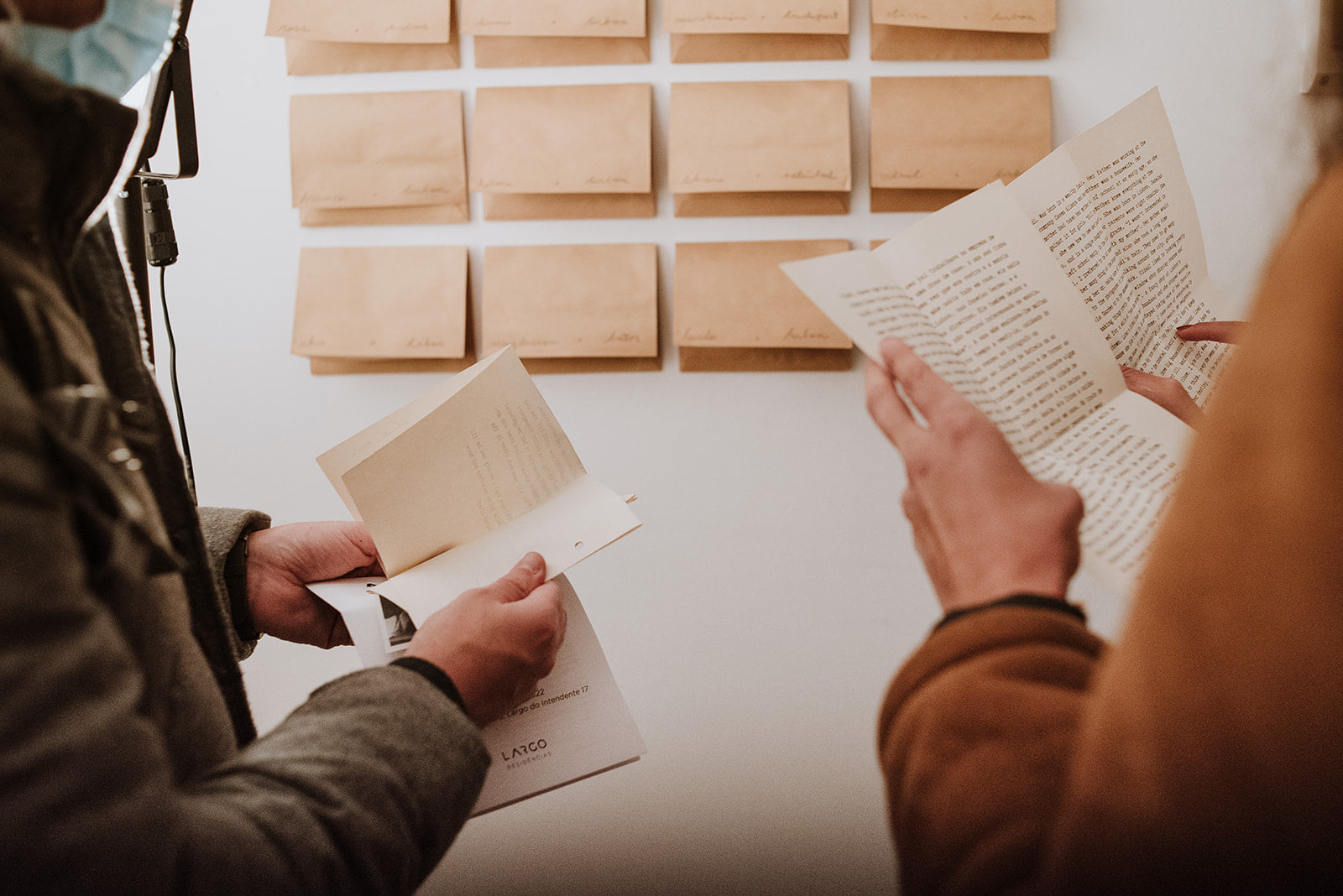
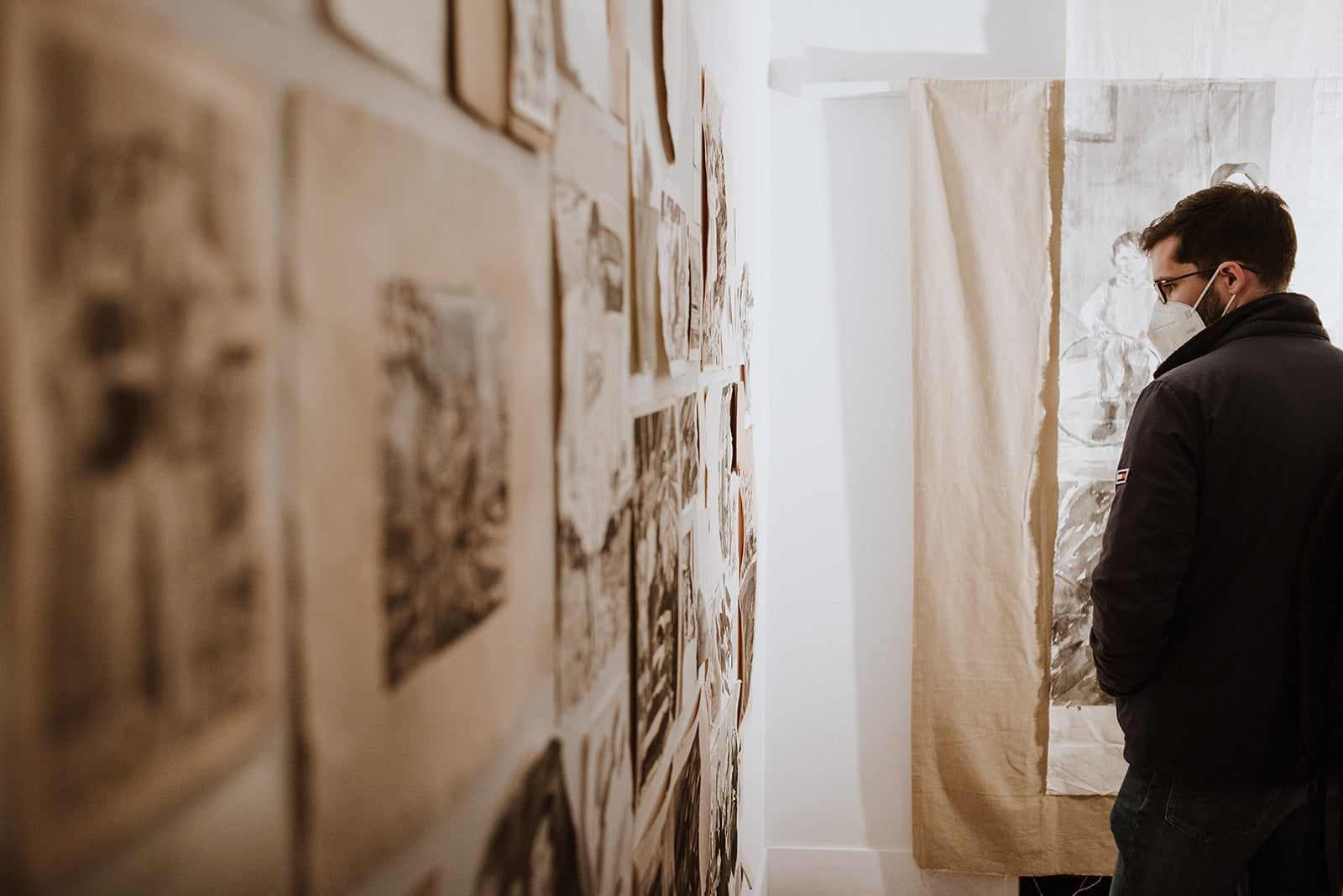
Photography: Nicole Sánchez
Nicole Sánchez
"Neighborhood Studio"
The month of February at Largo Café Estúdio and at the project-space mais uno +1 is dedicated to photography. The project "Neighborhood Studio" by Nicole Sánchez seeks to capture the essence of the Intendente community by reviving a tradition that — with the passing of time, the emergence of photomatons, compact digital cameras and smartphones — became extinct.
The neighbourhood's photography studios have represented for decades a place of celebration, reunion, rite, where people, friends and families would get together on special occasions (and not only), adorning themselves with their prettiest dress or more brilliantine in their hair than usual. At the same time, these studios also became a place of archive: in their windows were added the polished faces of the neighbourhood, the passport photographs, the family portraits, or the images of the baby that had just been born. Every face that built that neighborhood, that community, that extended family was mirrored.
By reconstructing this “neighborhood studio” in the project-space mais uno +1, Nicole seeks to comfort the nostalgia for a meeting place consumed by time. For a month, neighbors will again be able to put on their best tie, wear their brightest nail polish, and come together for a photo. A photo that they can take home, frame, and put on the living room wall, to remind them that, after all, they belong to something more united. As a showcase, Largo Café Estúdio presents the results of the "Neighborhood Studio" that was set up in December 2021.
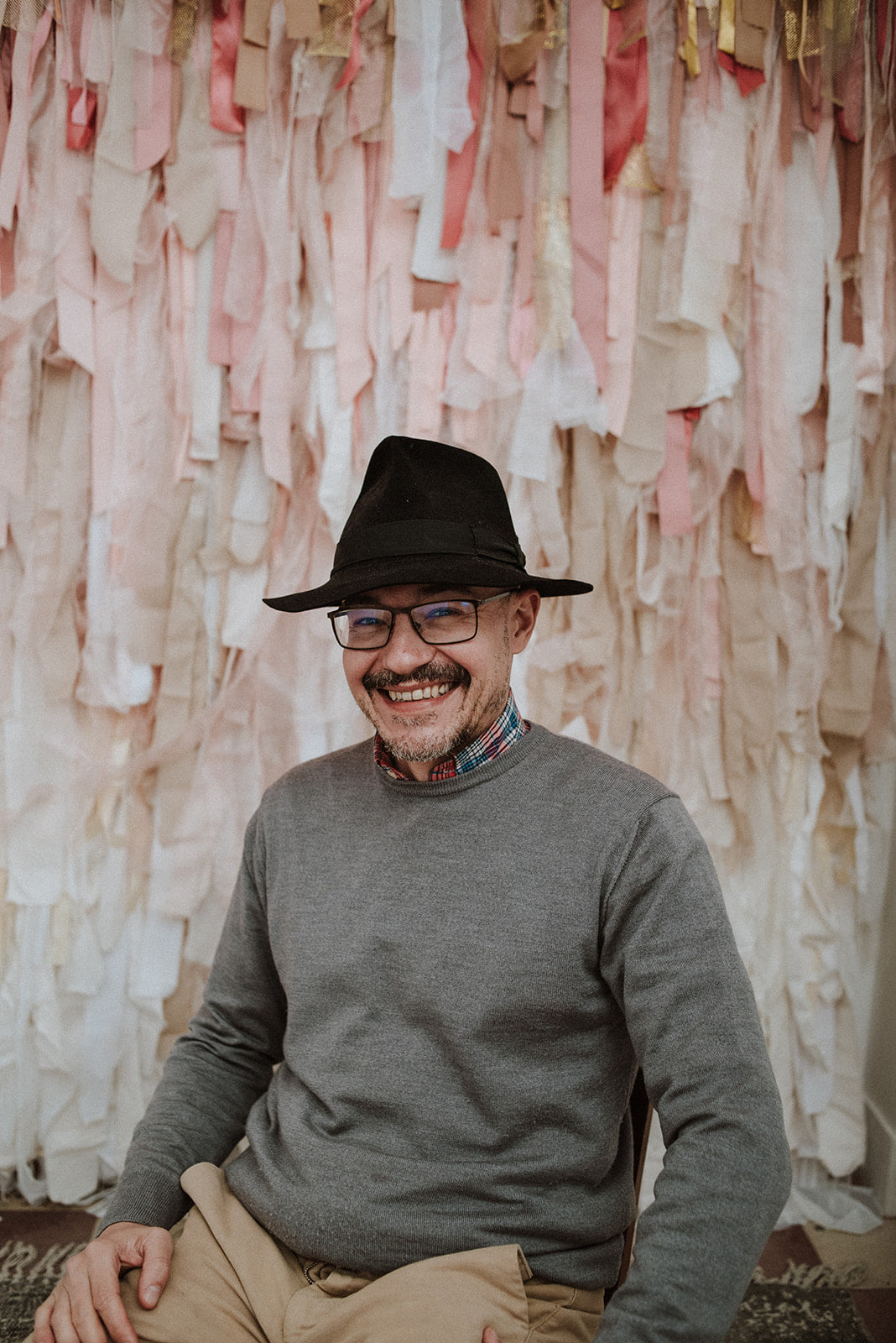
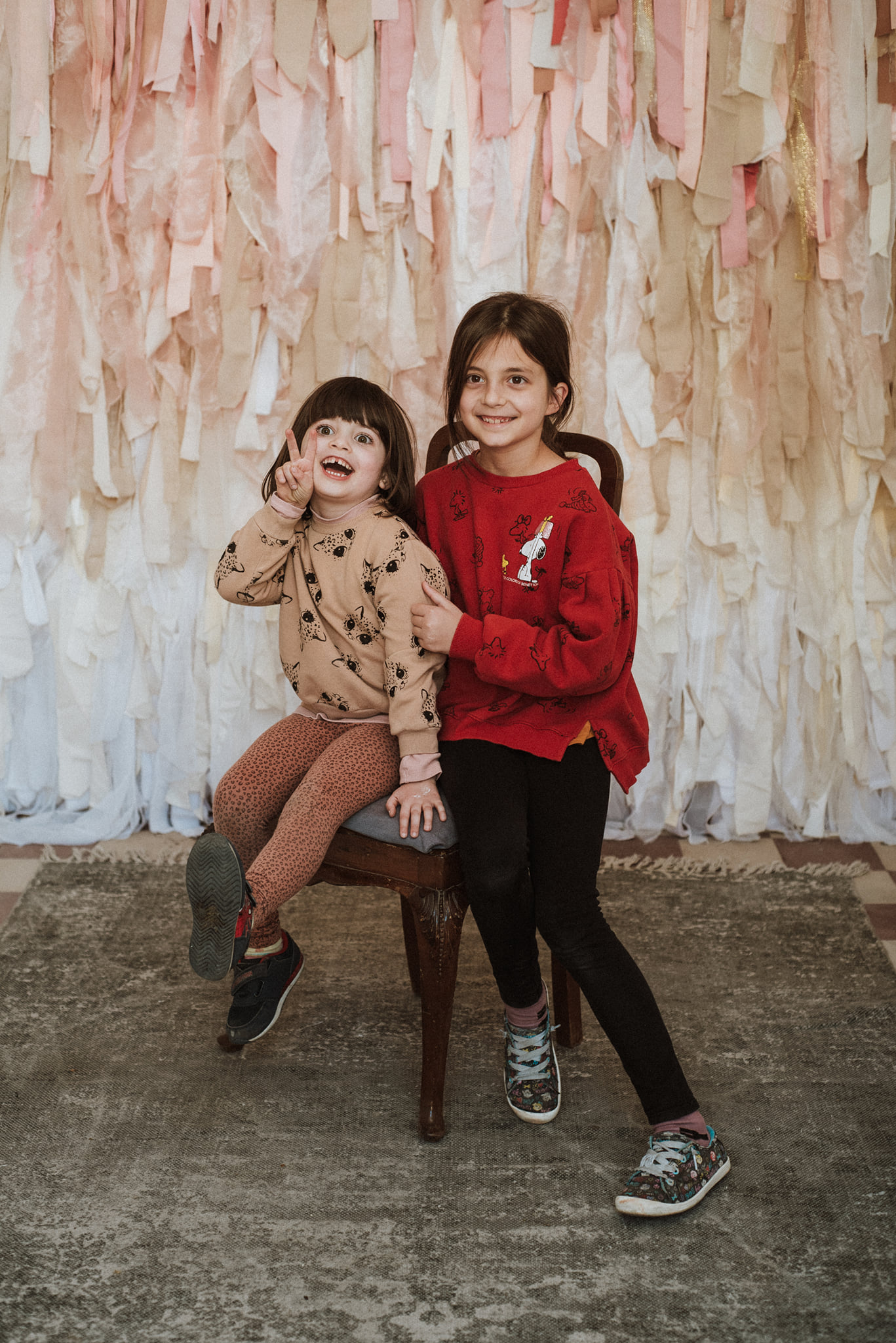
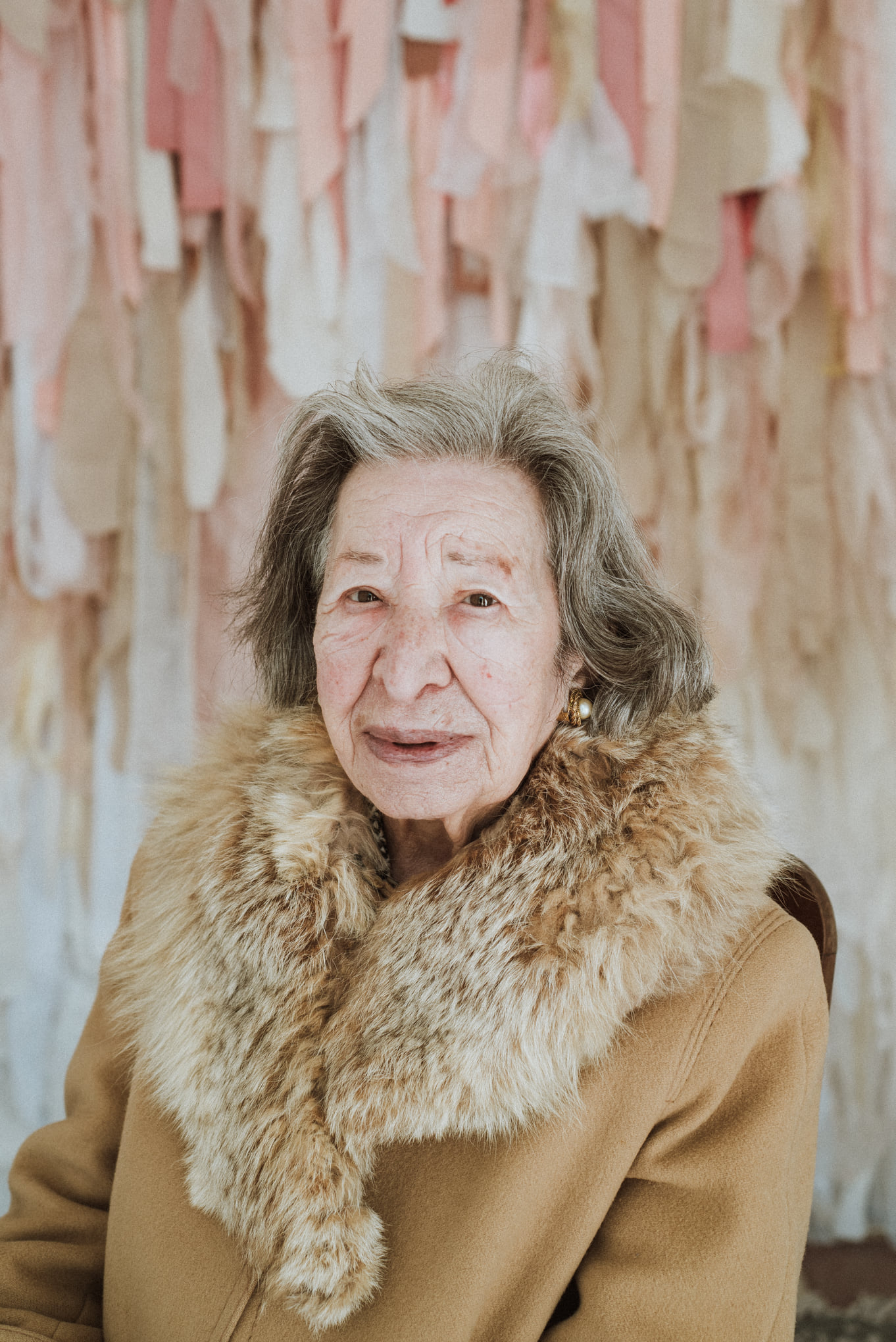
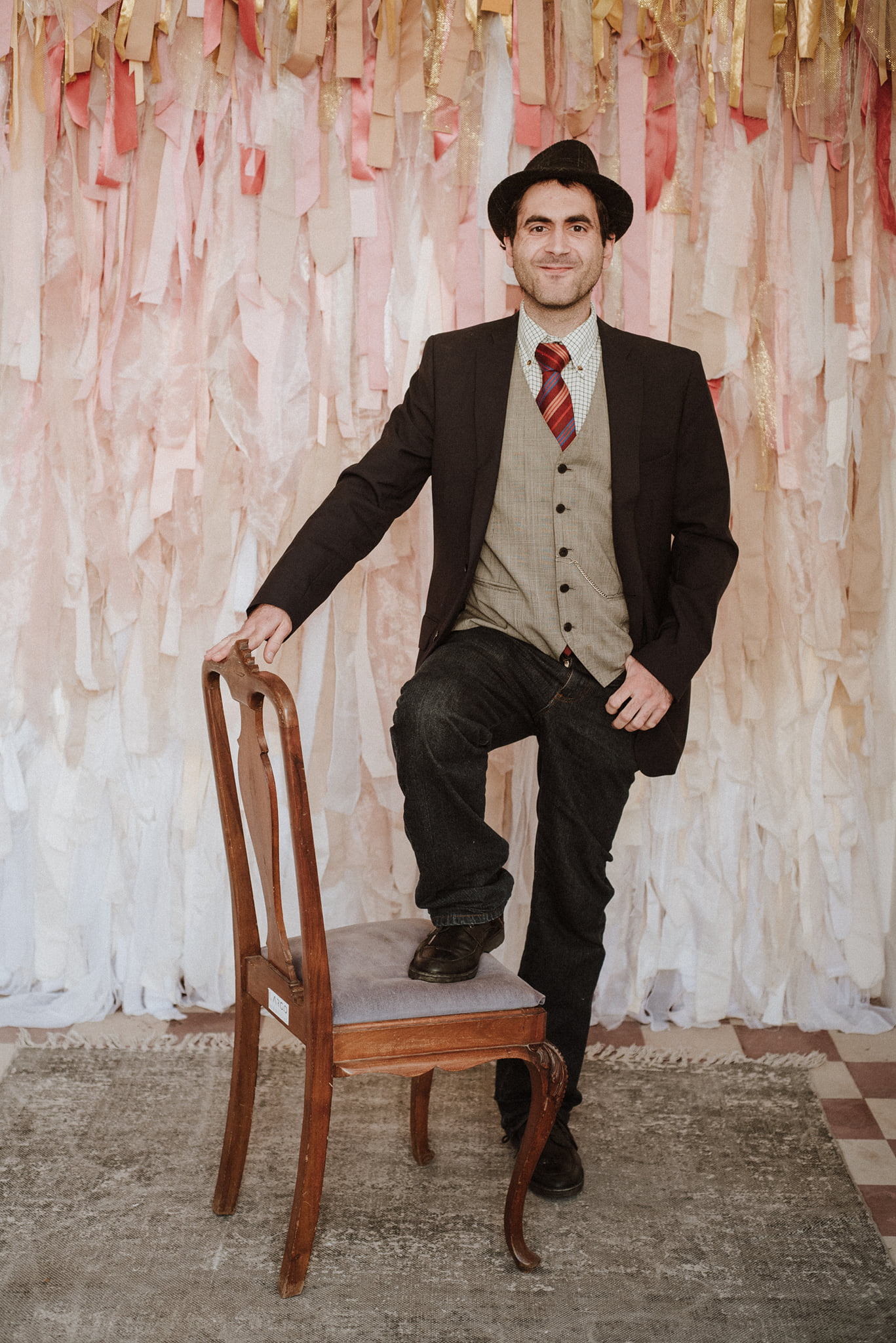
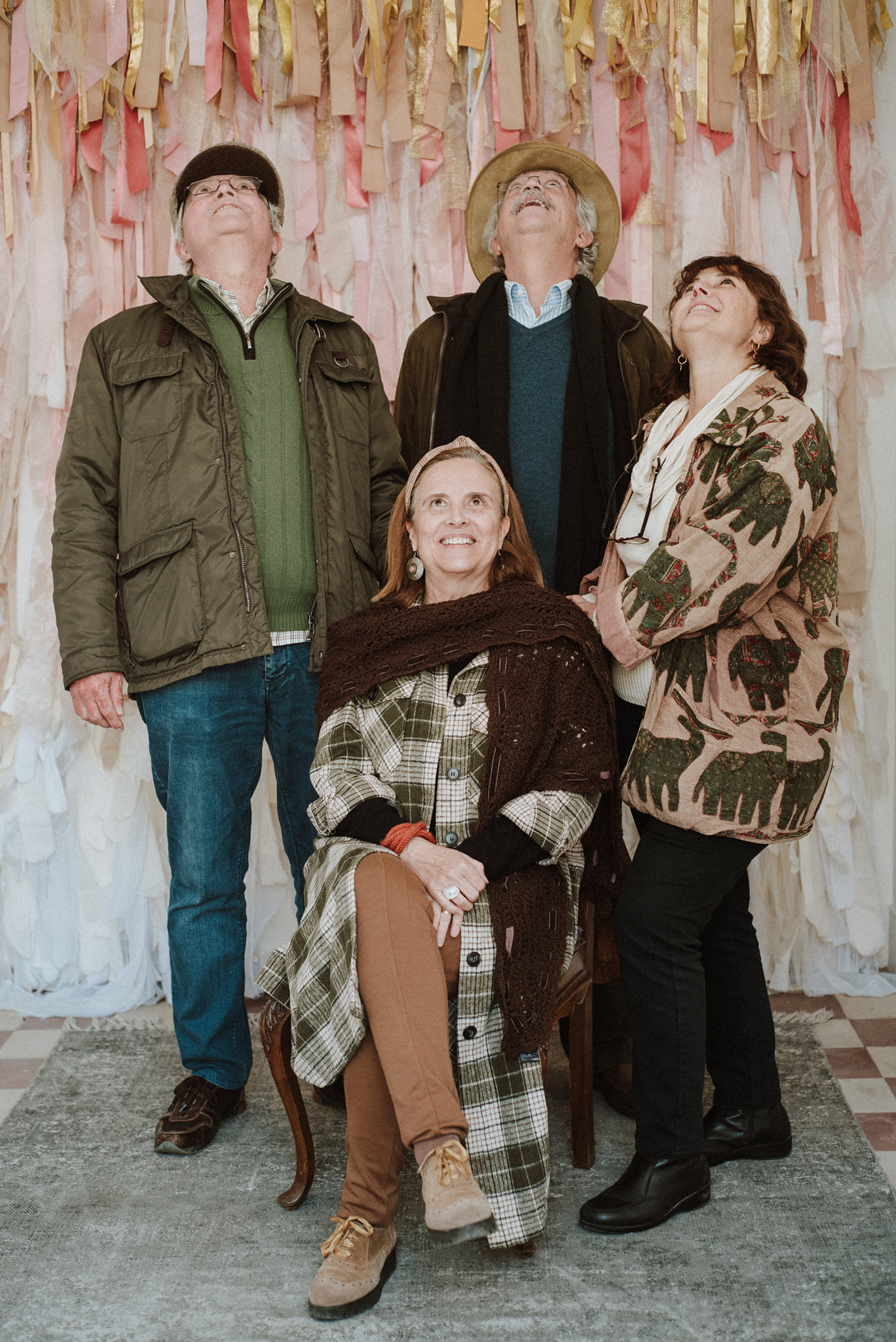
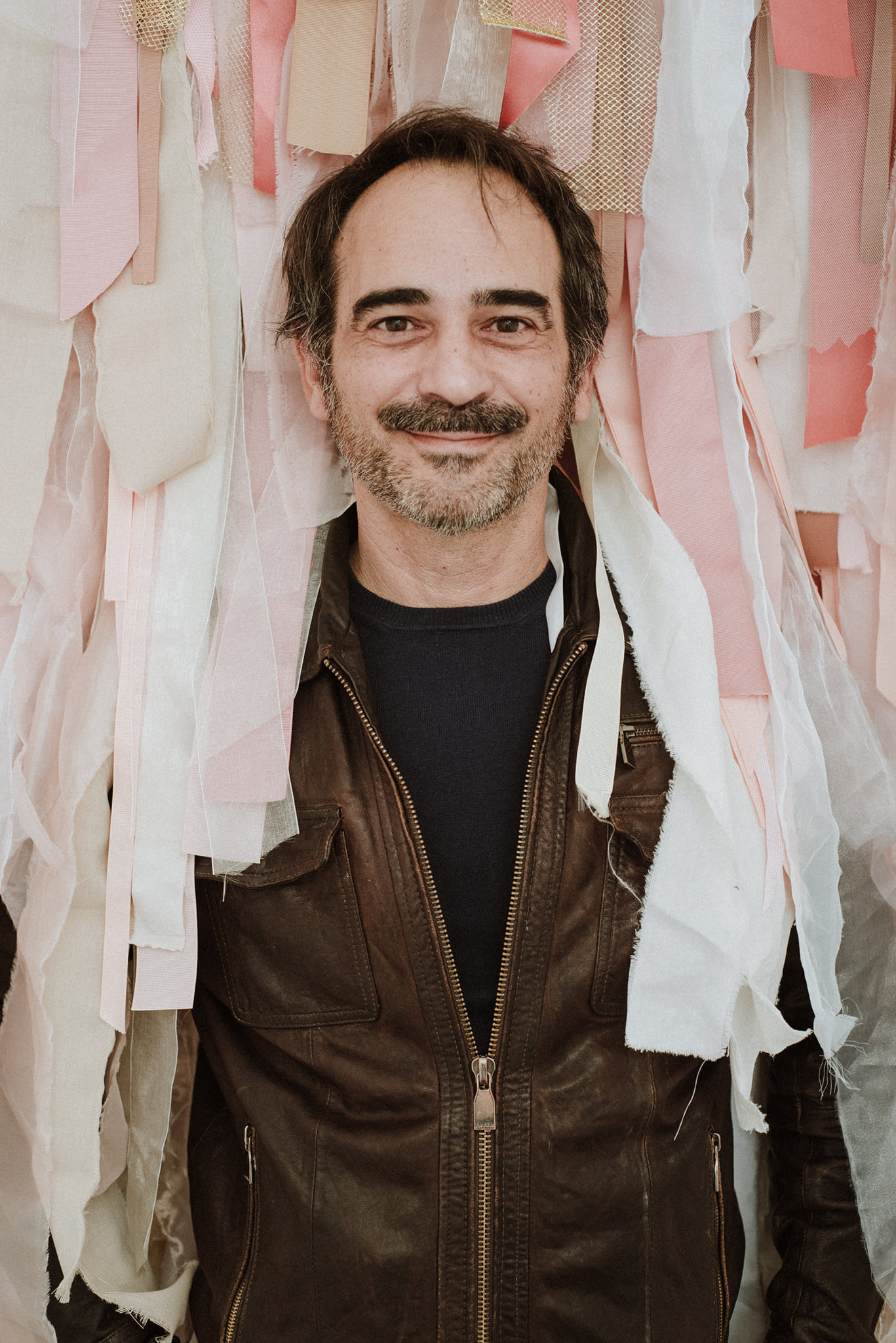
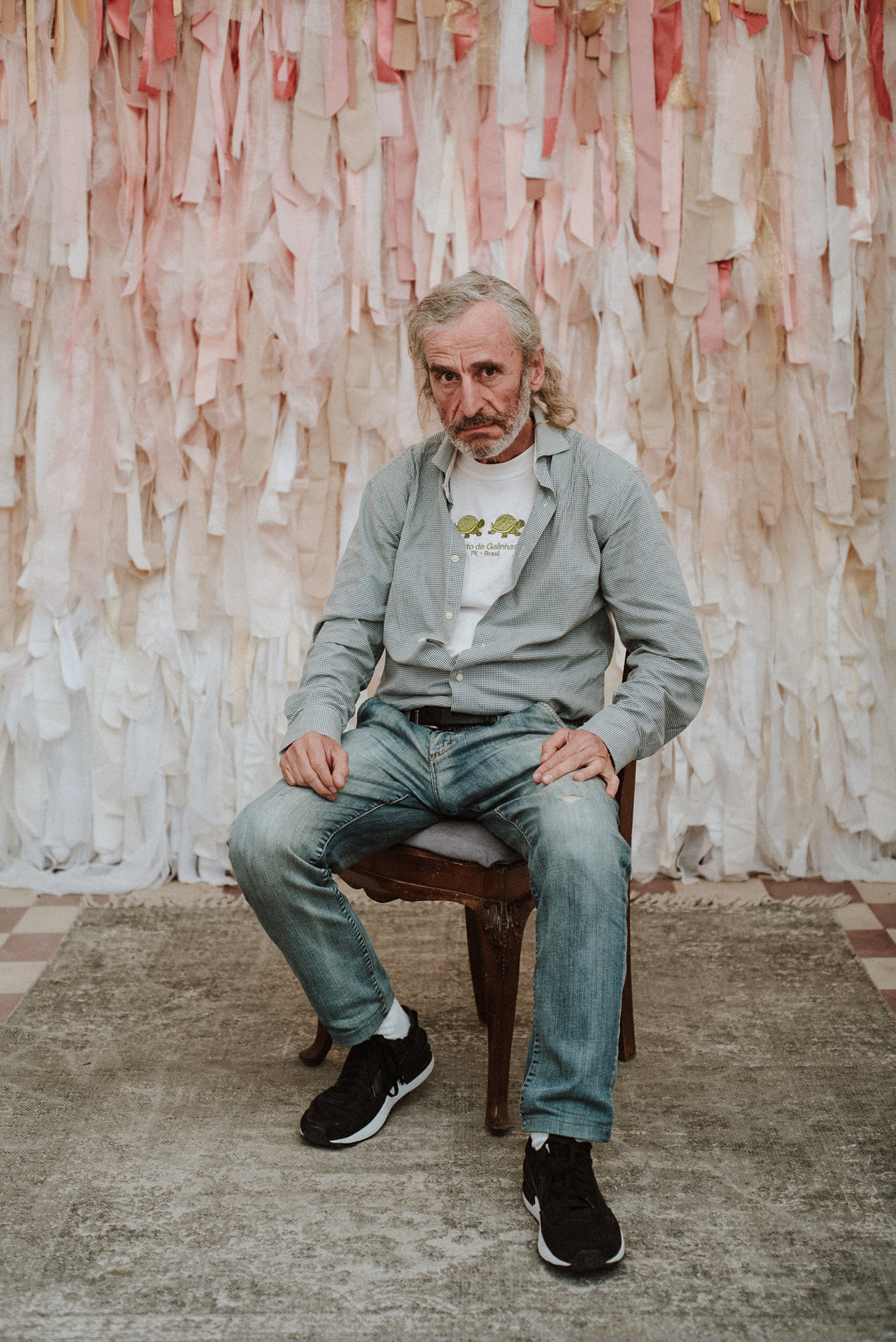
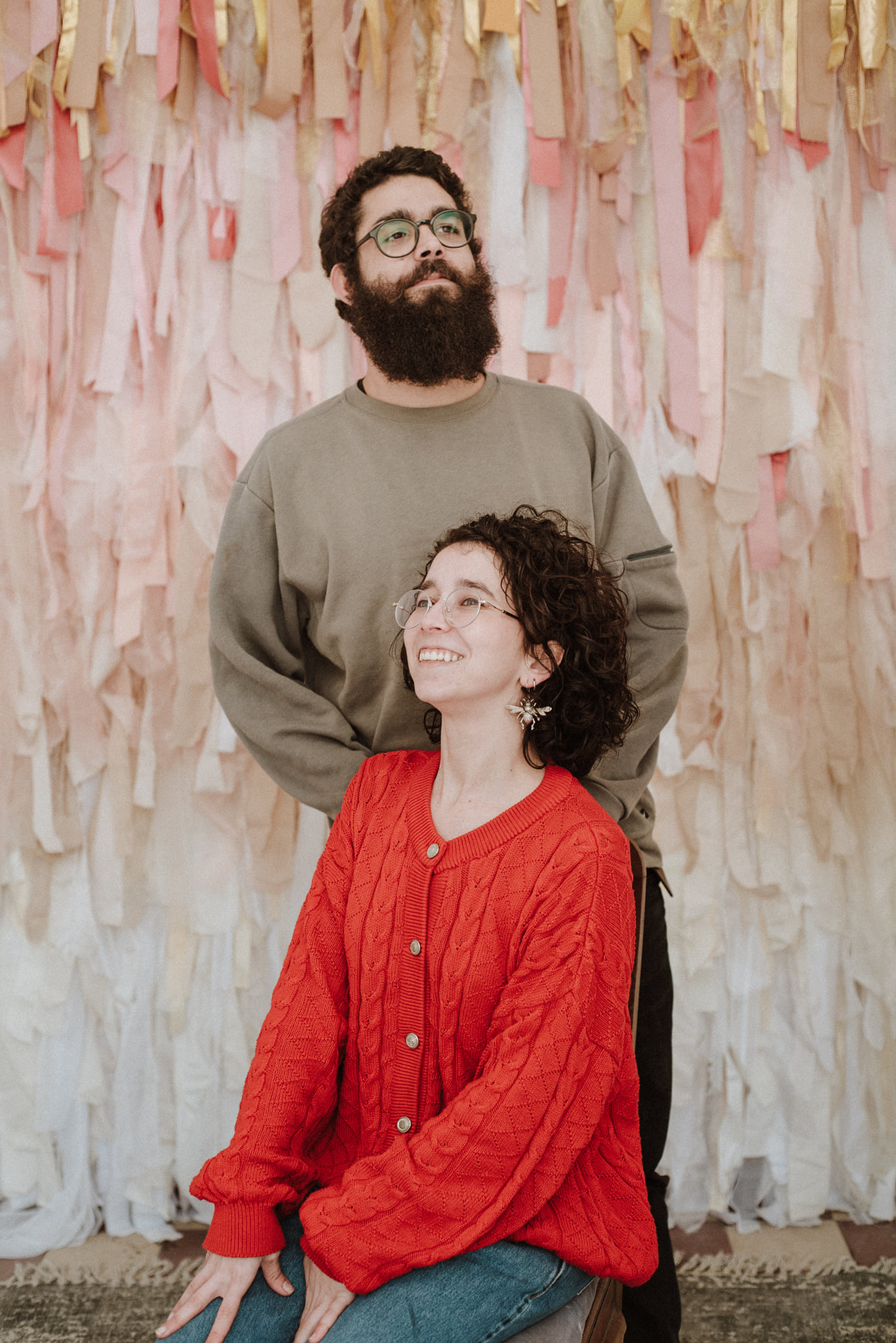
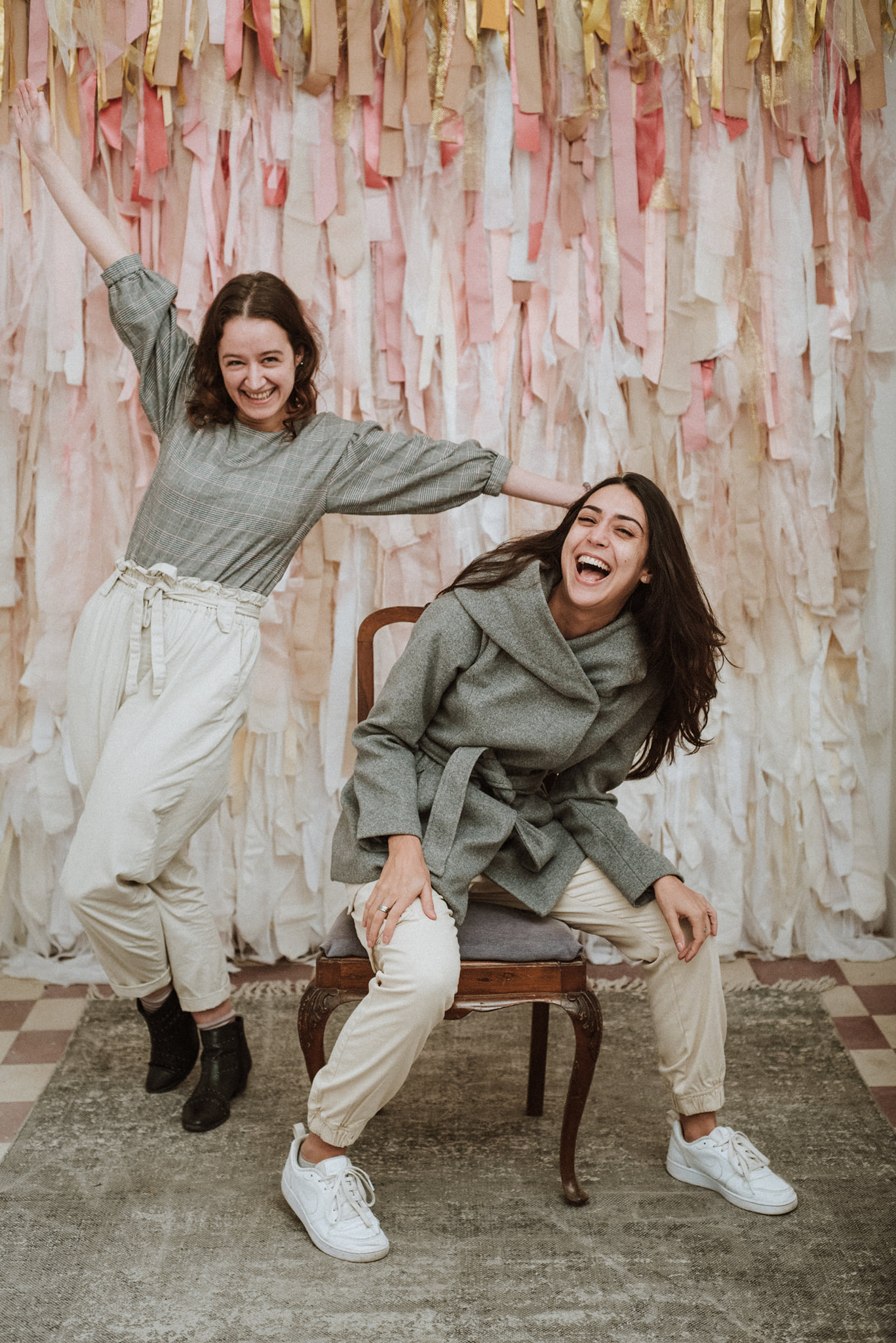
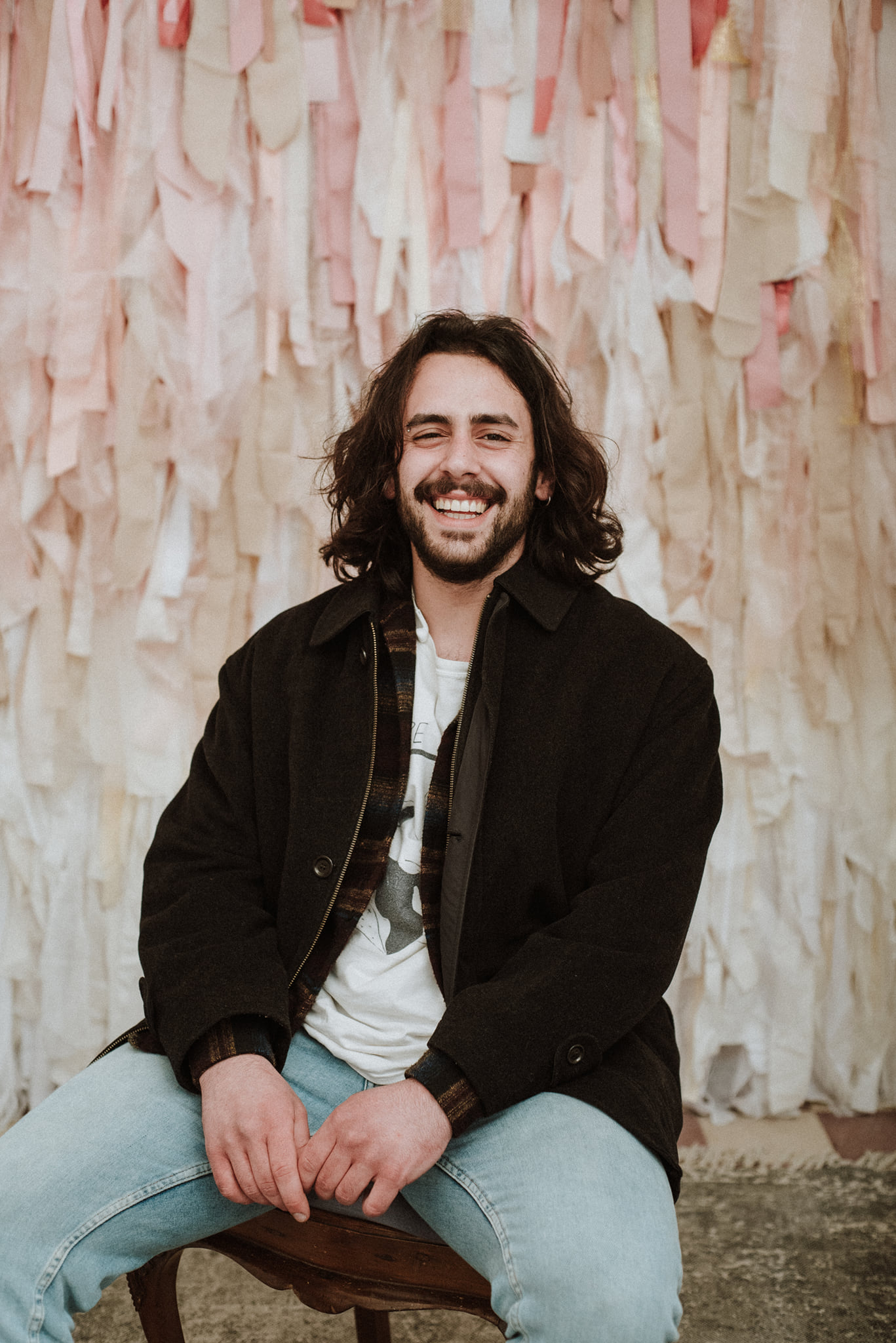
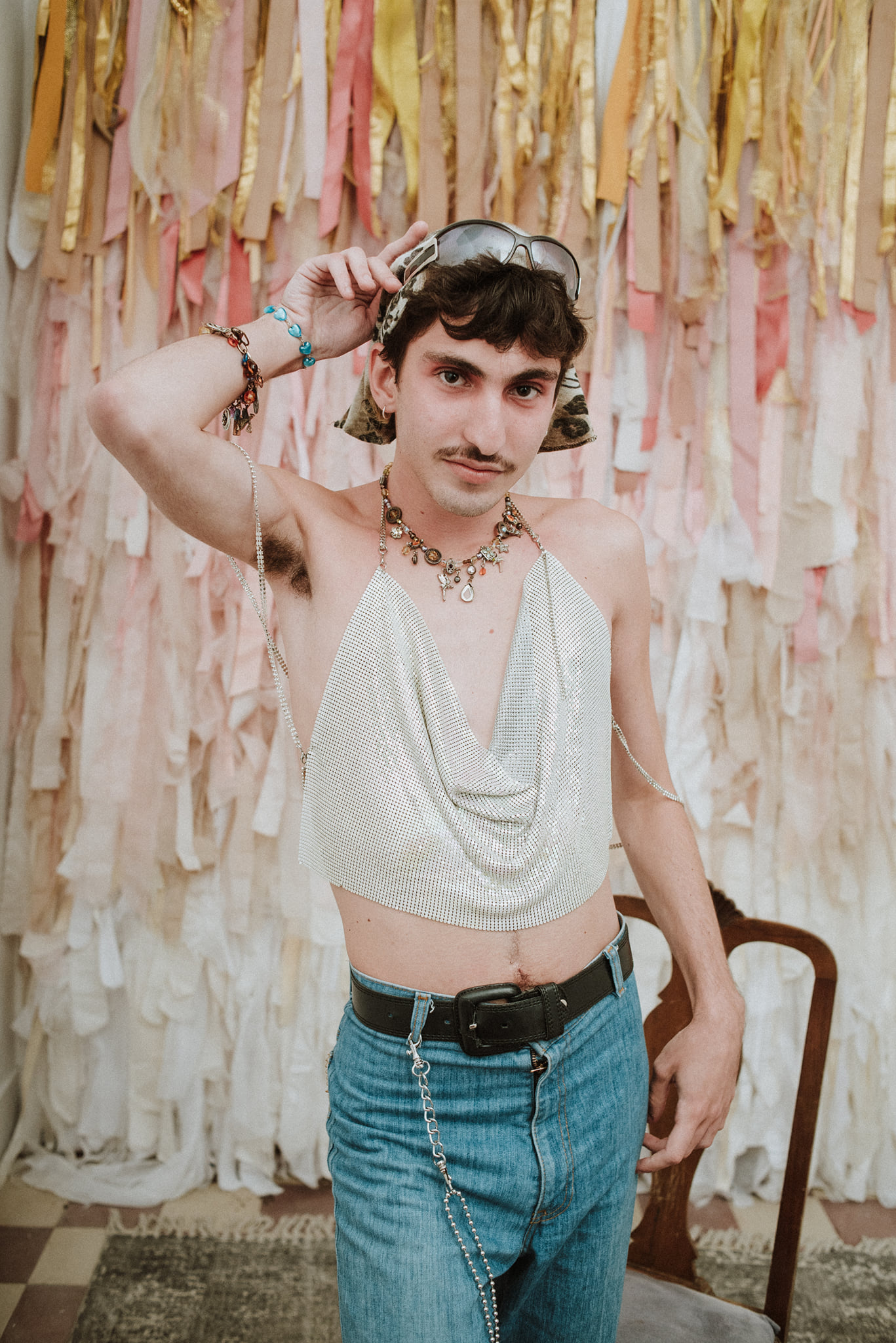
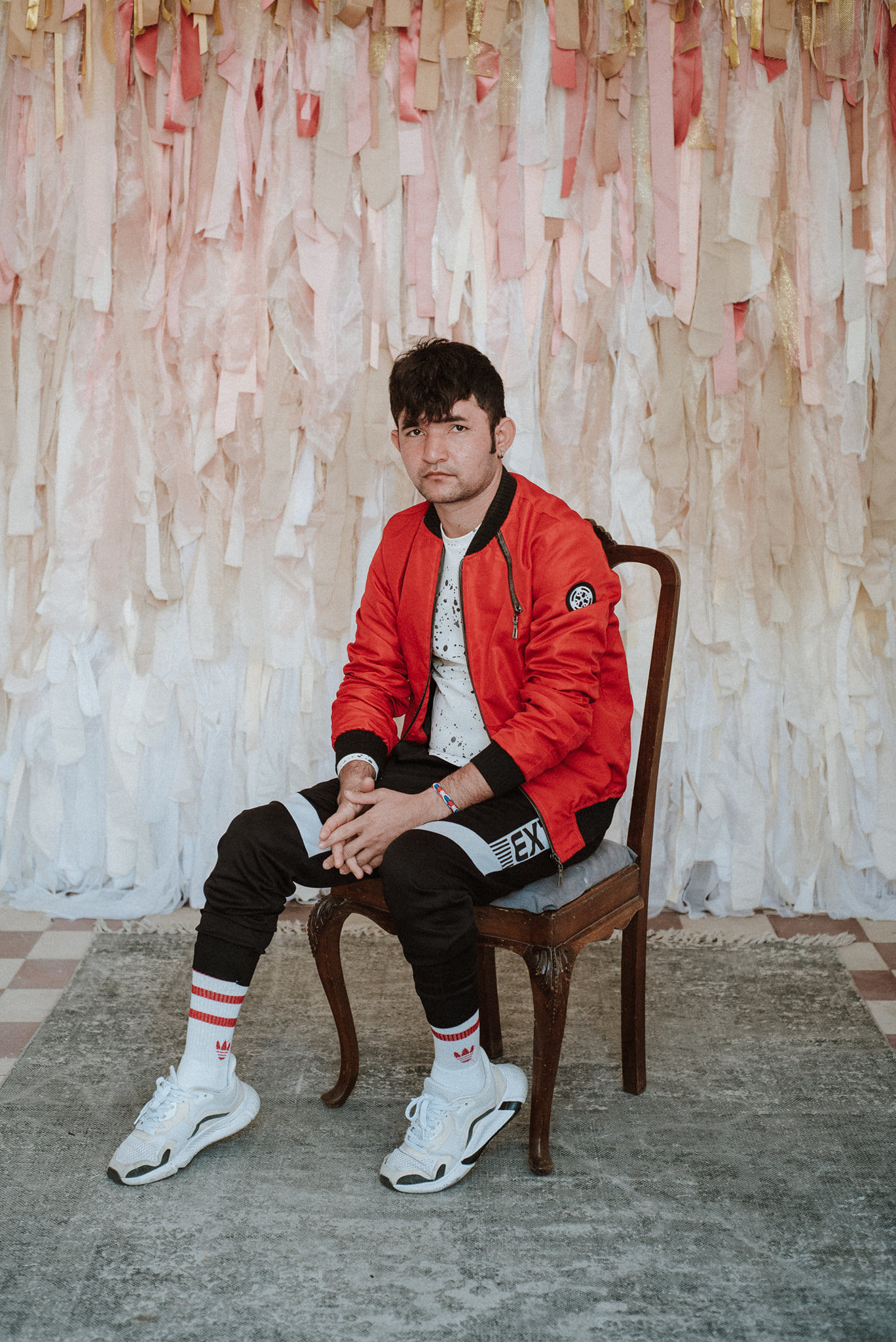
Fotografia: Nicole Sánchez
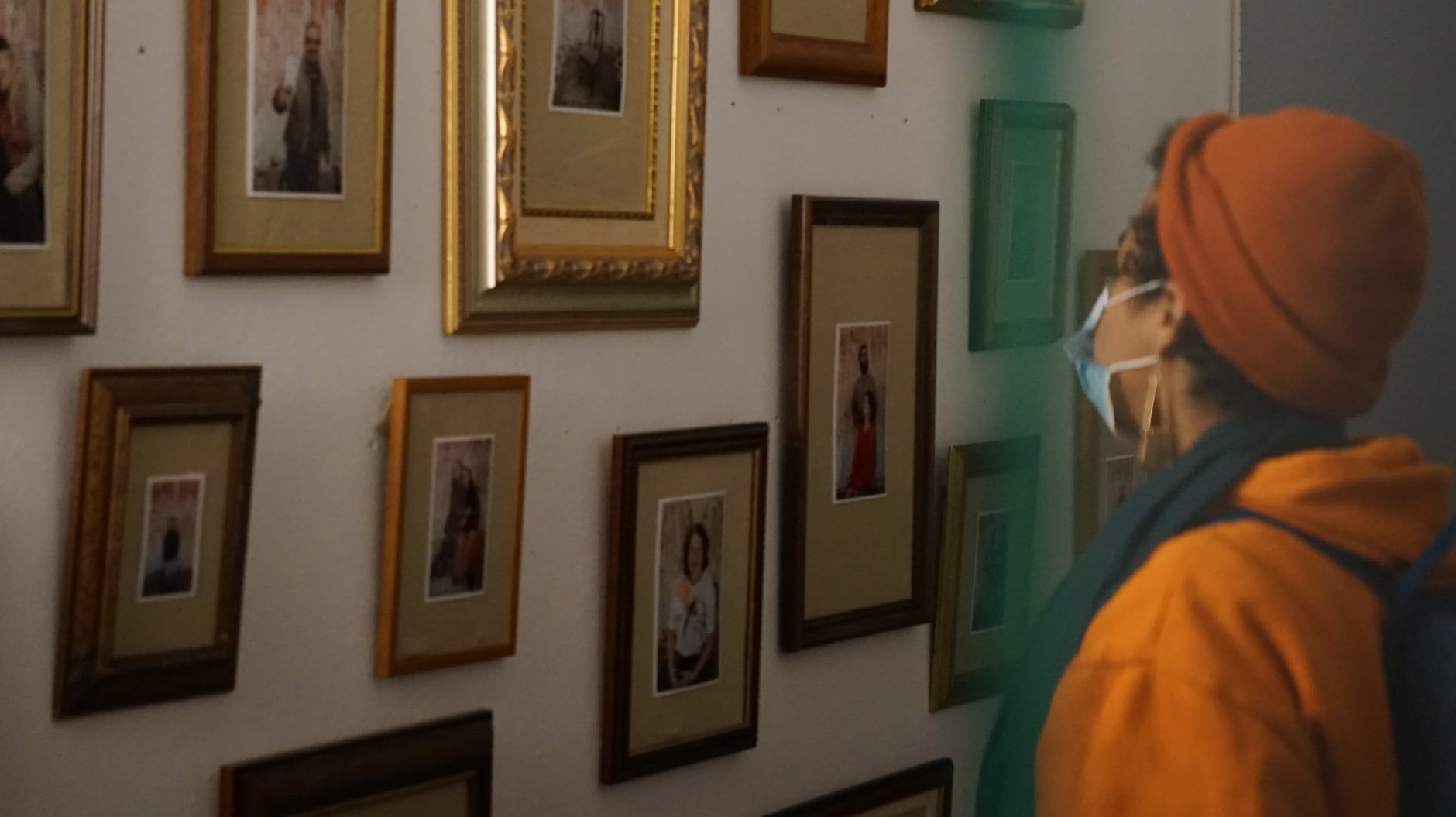
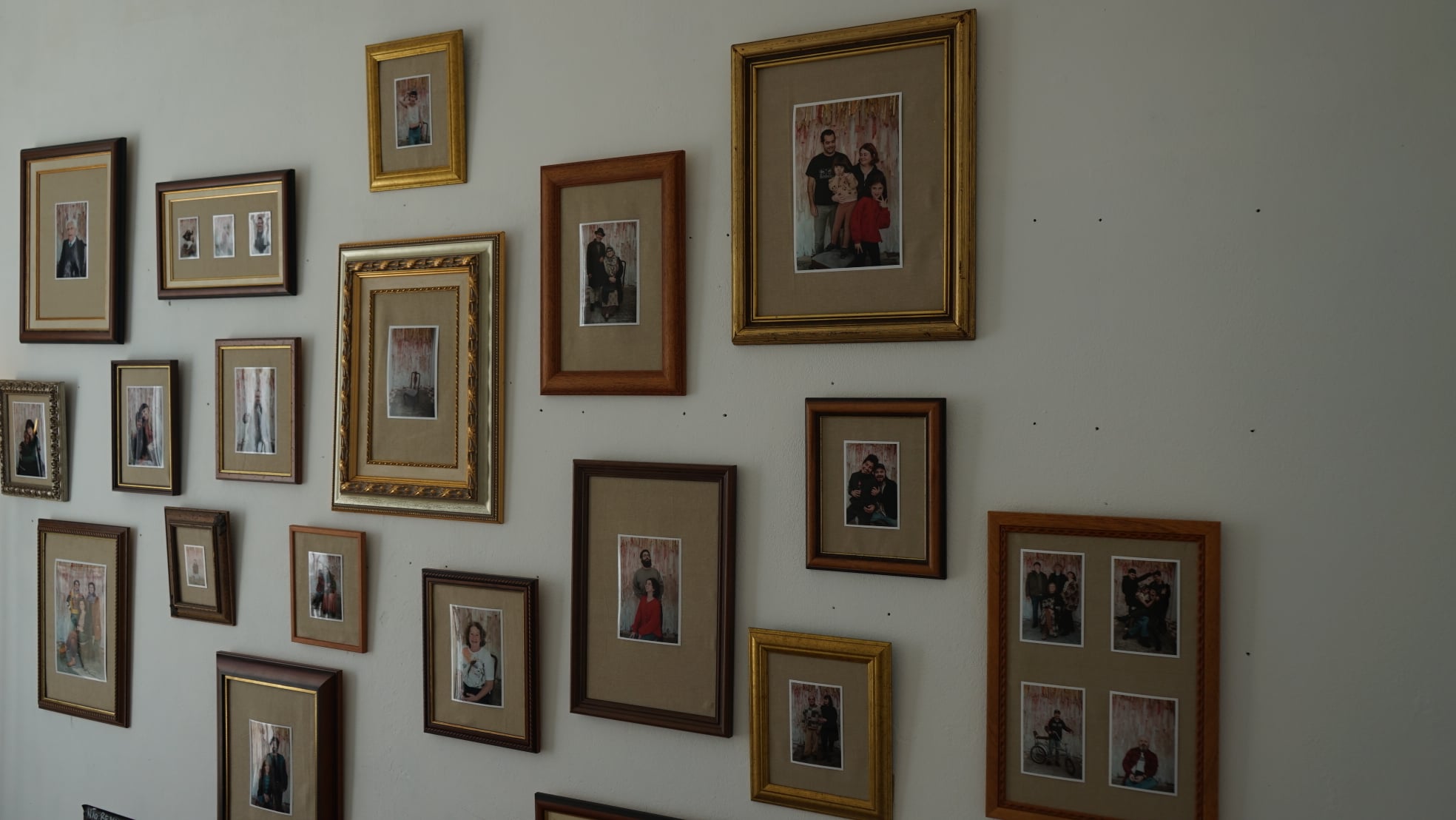
Photography: Inês Gil Silva (Sounds Like a Plan Photography)
mais uno +1
"Sundays of Creation"
In the midst of the military dictatorship in Brazil — and three years before its end in Portugal — the “Sundays of Creation” took place in 1971 at the Museum of Modern Art in Rio de Janeiro. By the initiative of Frederico Morais, and through the action and imagination of the hundreds of people who gathered, every Sunday there was an act of creation, dialogue and collective celebration. This action was assumed as a true political rupture at a time when freedom was not a possibility.
In March 2022, at Largo do Intendente, in Lisbon, we remembered the “Sundays of Creation” at Largo Café Estúdio. As a part of the LARGO Residências Cultural Cooperative, many Sundays dedicated to culture and art also happened here. Over the last 10 years, the Café has been pulsating in this square as a meeting and dialogue center in the Intendente Neighborhood.
During these latest actions by Largo Café Estúdio in Largo do Intendente, we invited its community to create with us. Each Sunday of this month was dedicated to a form of expression — words, images, lines, movements — in honor of all the people, artists and exchanges that have passed through here, and the different types of language used. Thus, we invited everybody to goodbye to the Café Estúdio, to thank it and tell it that it belongs to us, that it lives within us and it will continue to last in time.
Simultaneously, in the adjacent mais uno +1, we accumulated the affections and expressions exchanged throughout these Sundays in a fanzine project. The fanzine became an open studio, an artistic project, a participatory process and an archival exhibition, where the words spoken, the images captured, the lines drawn and the movements performed were united and immortalized each of its pages.
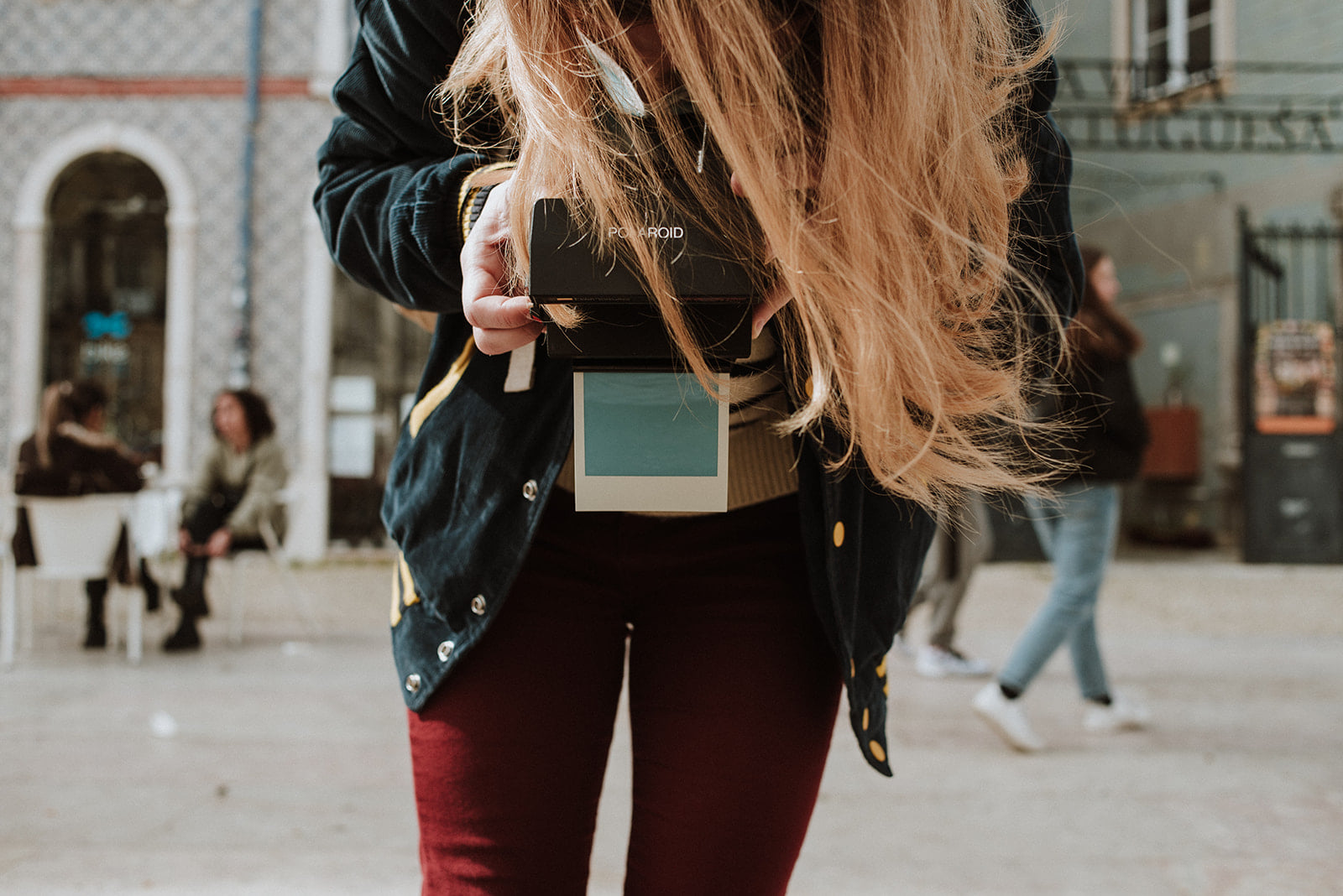
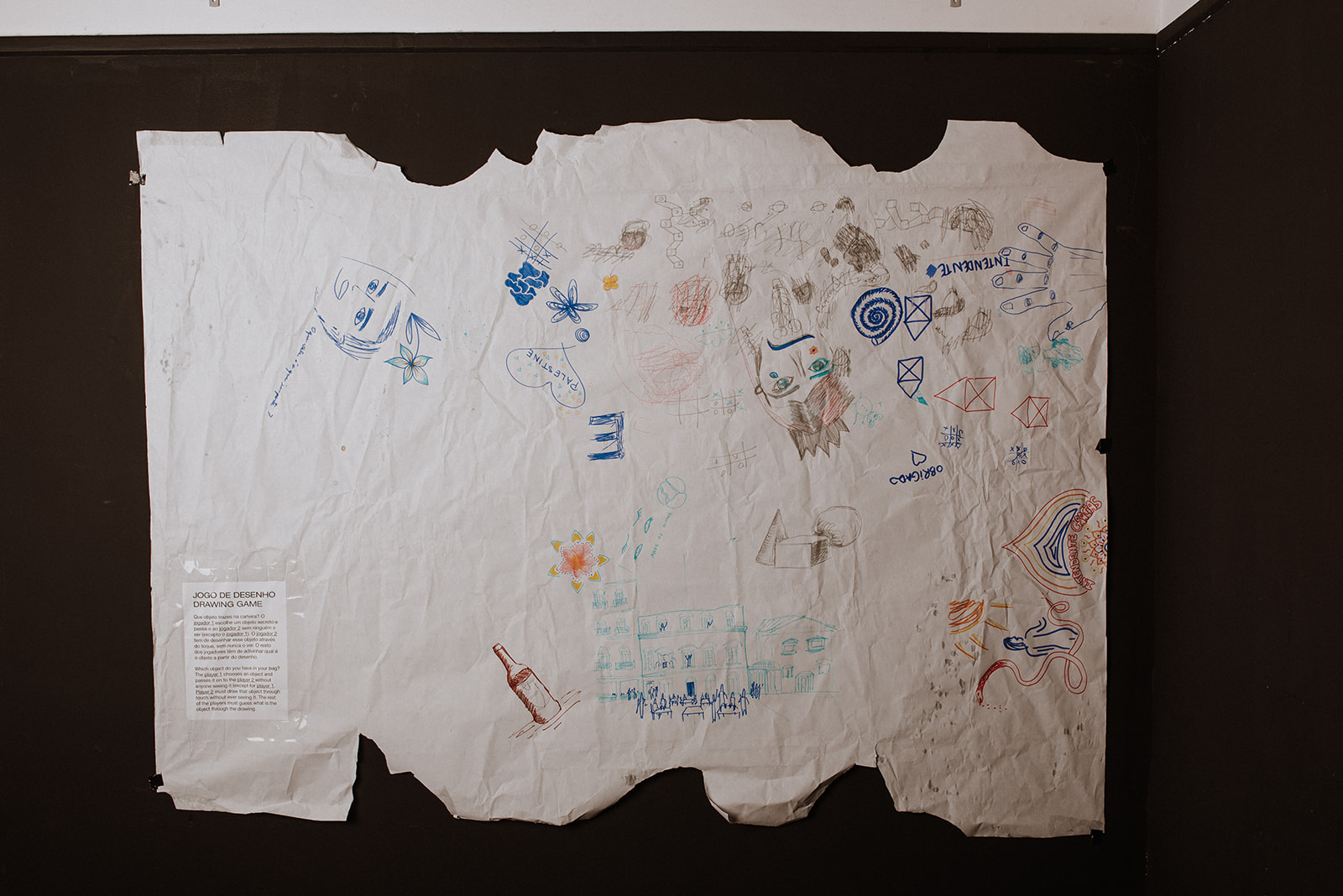
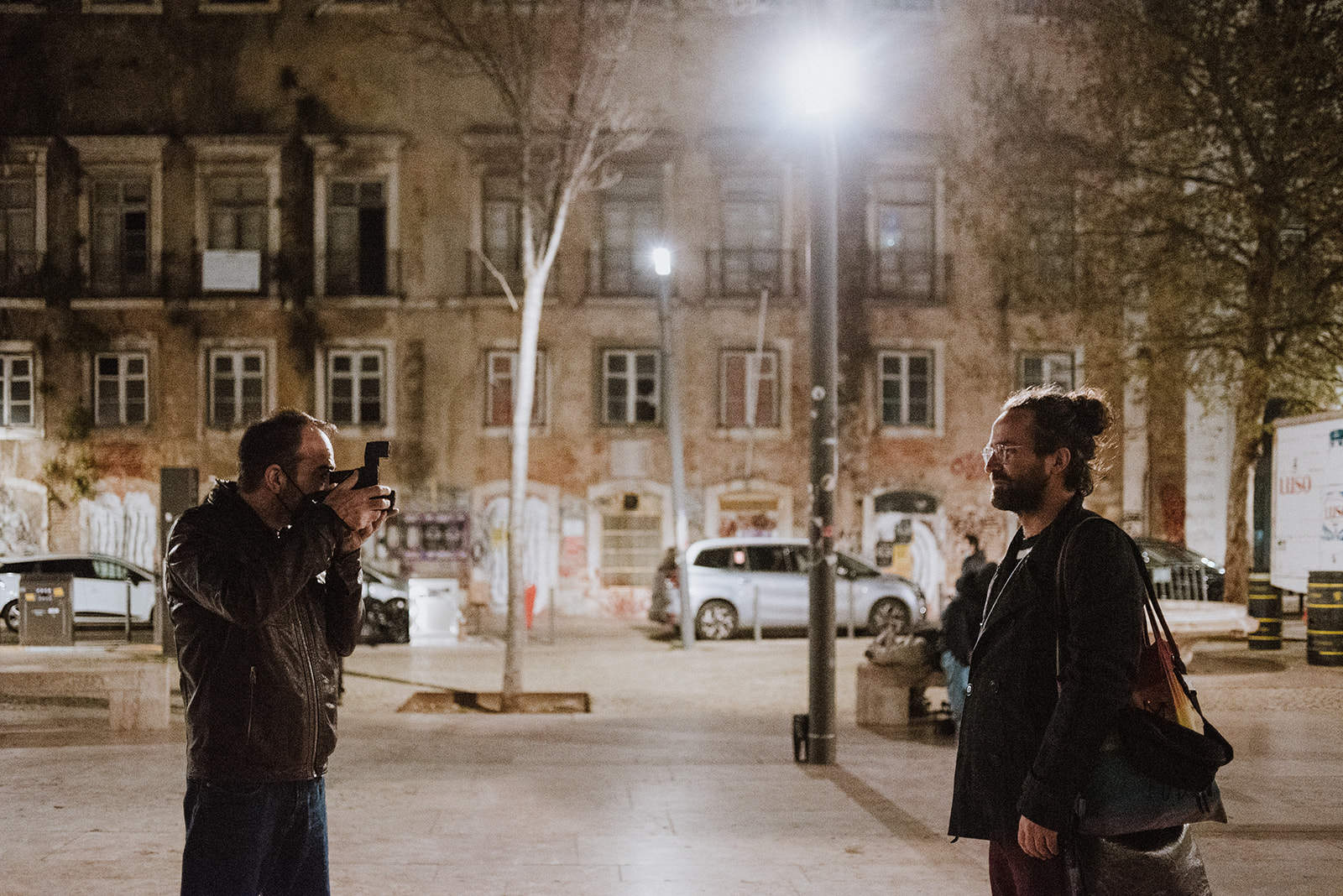

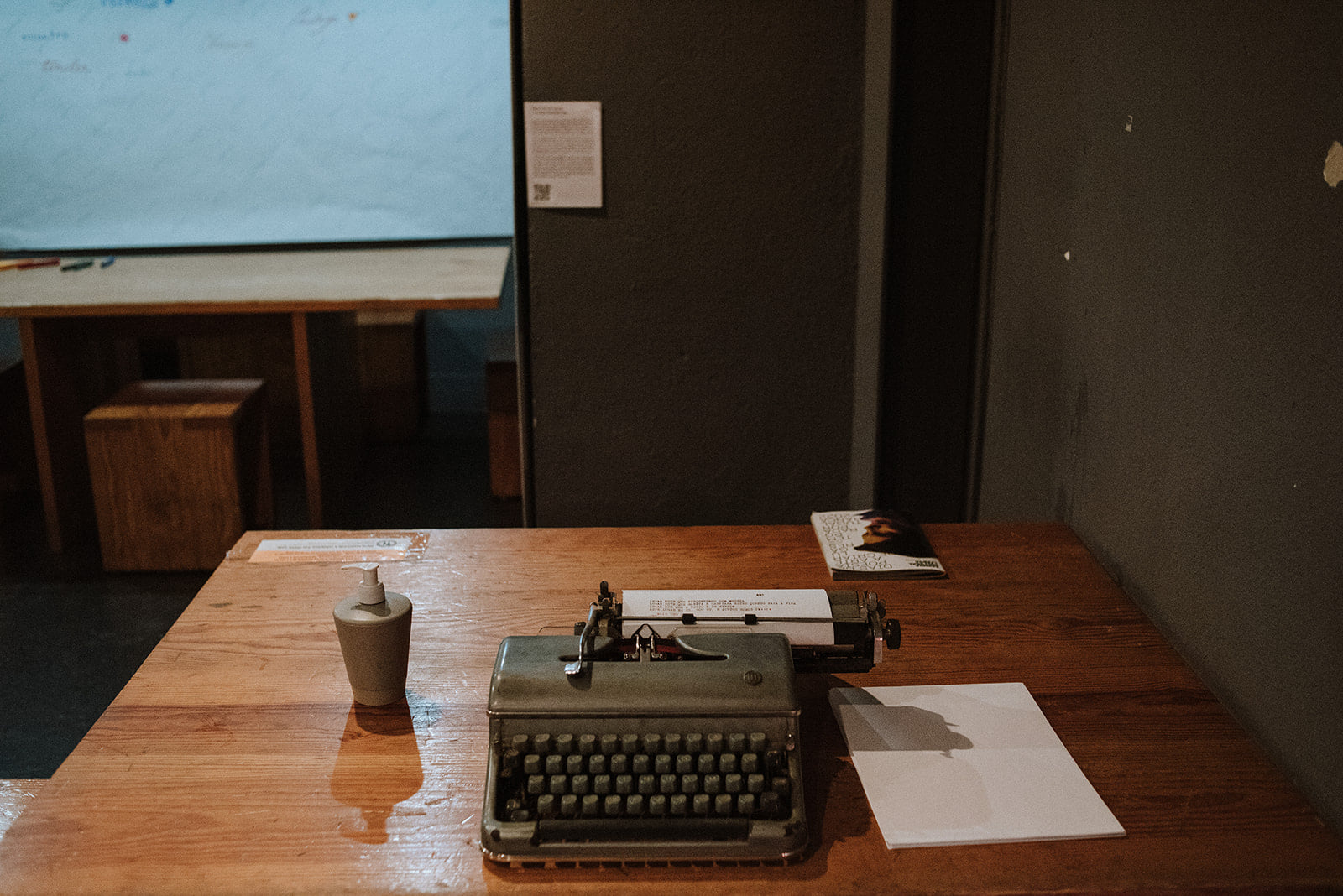
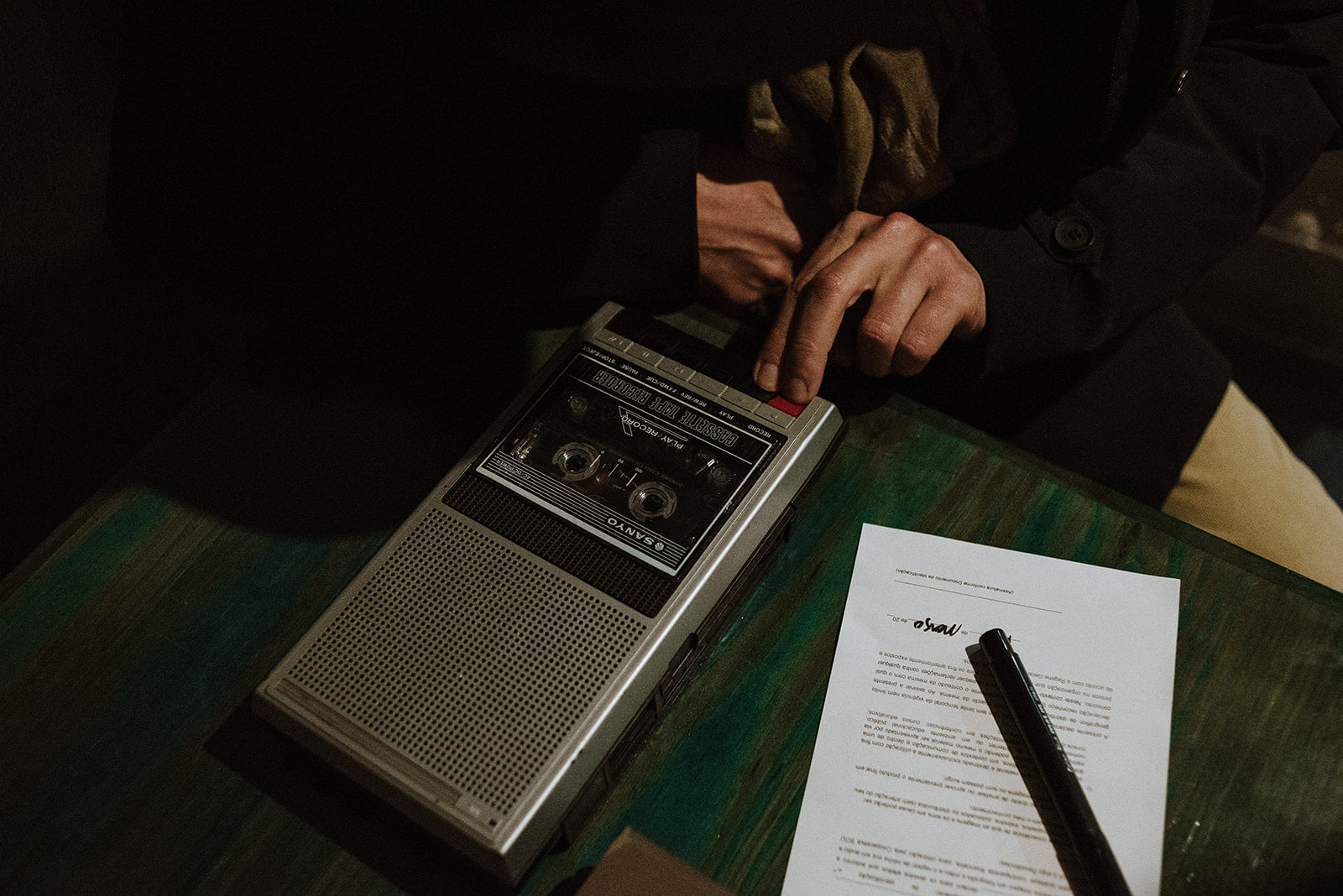
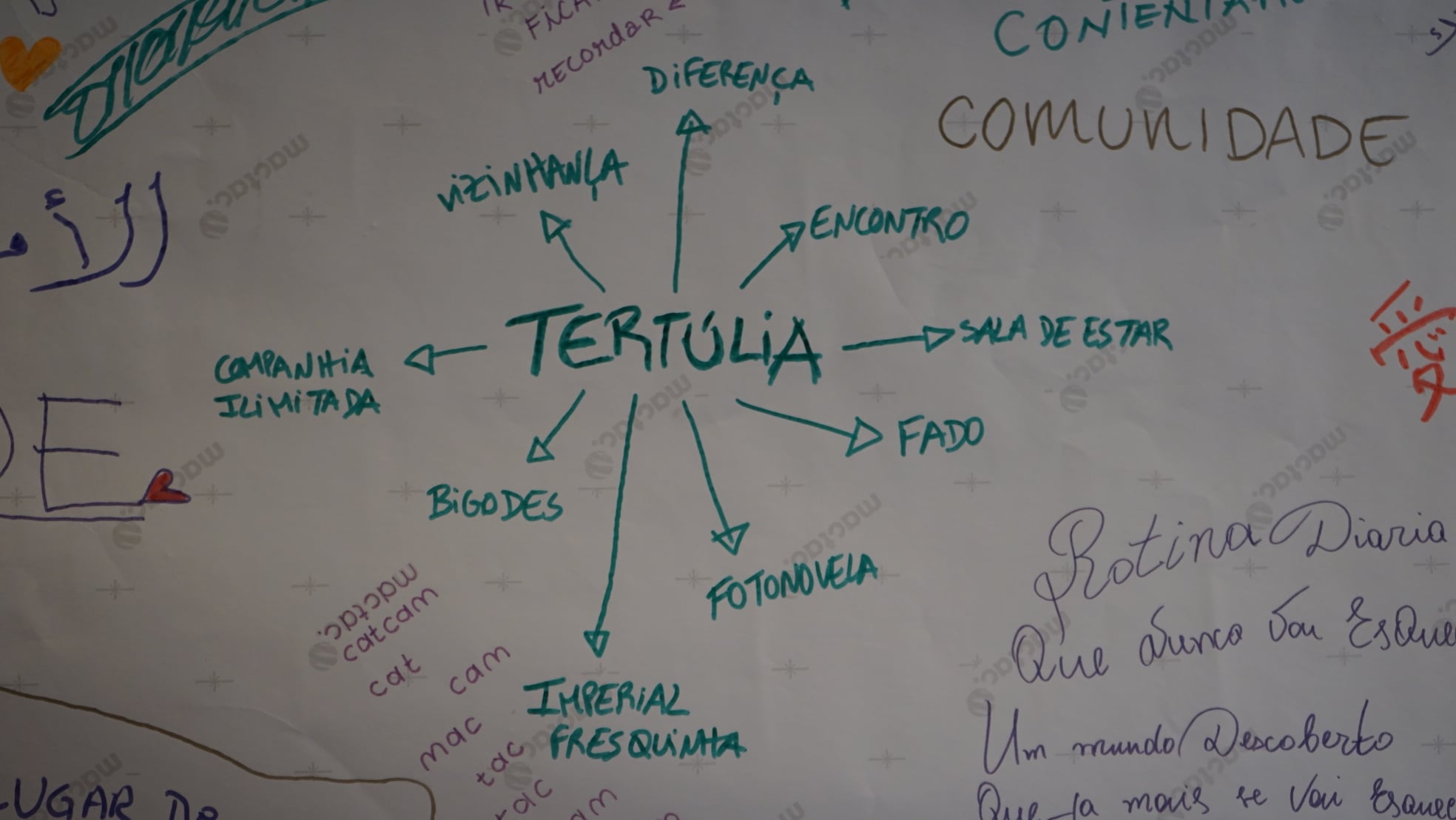
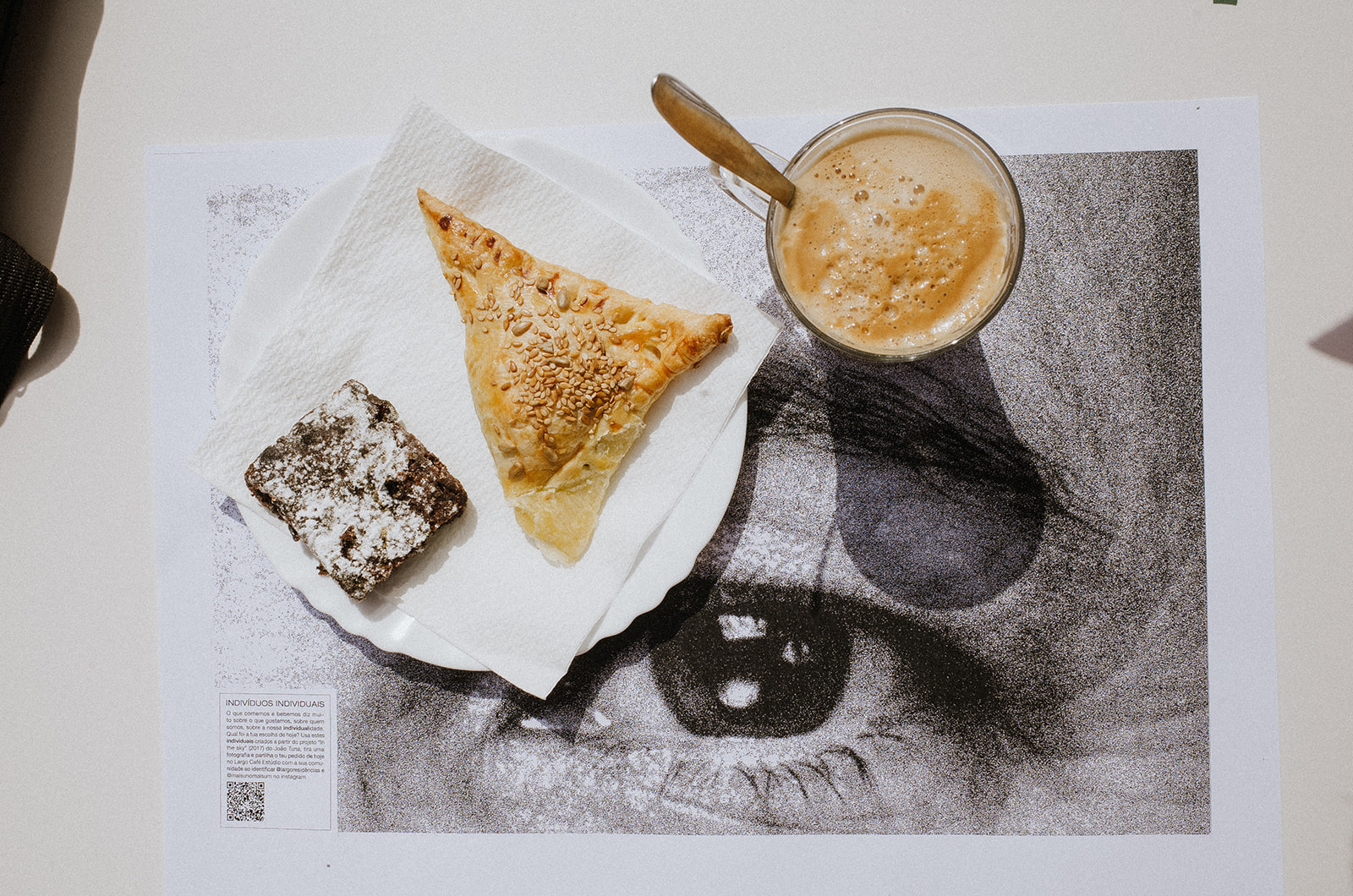
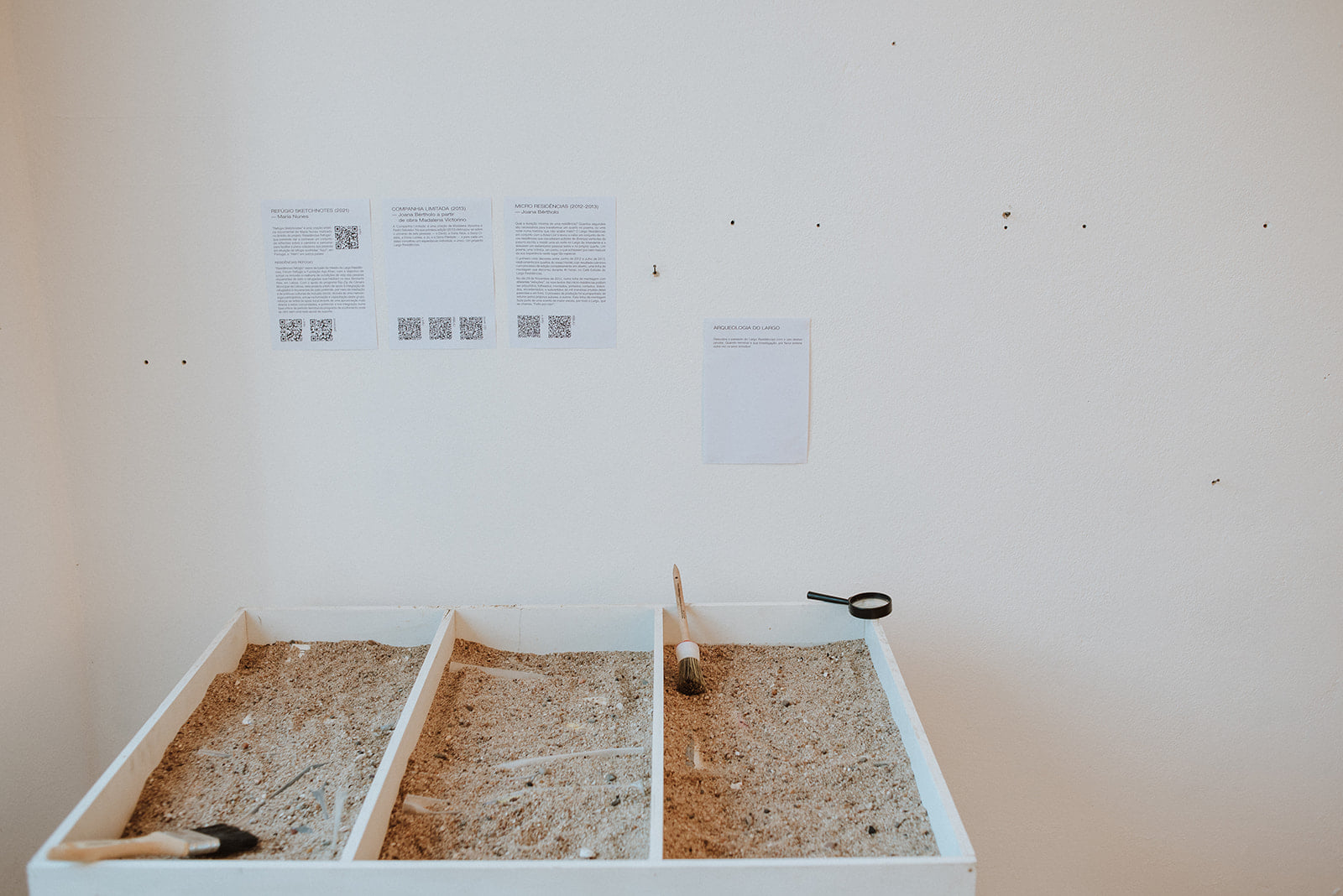
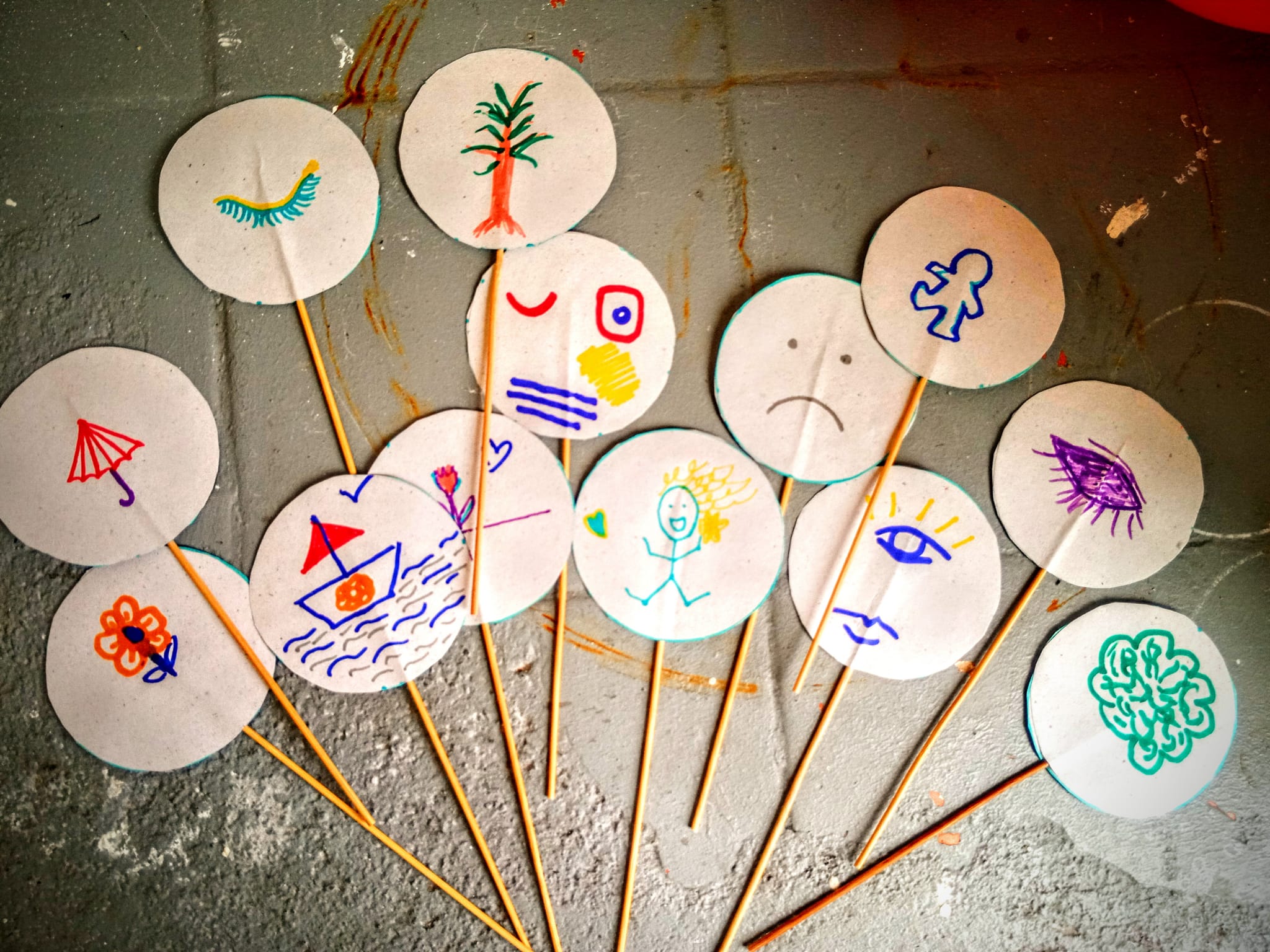
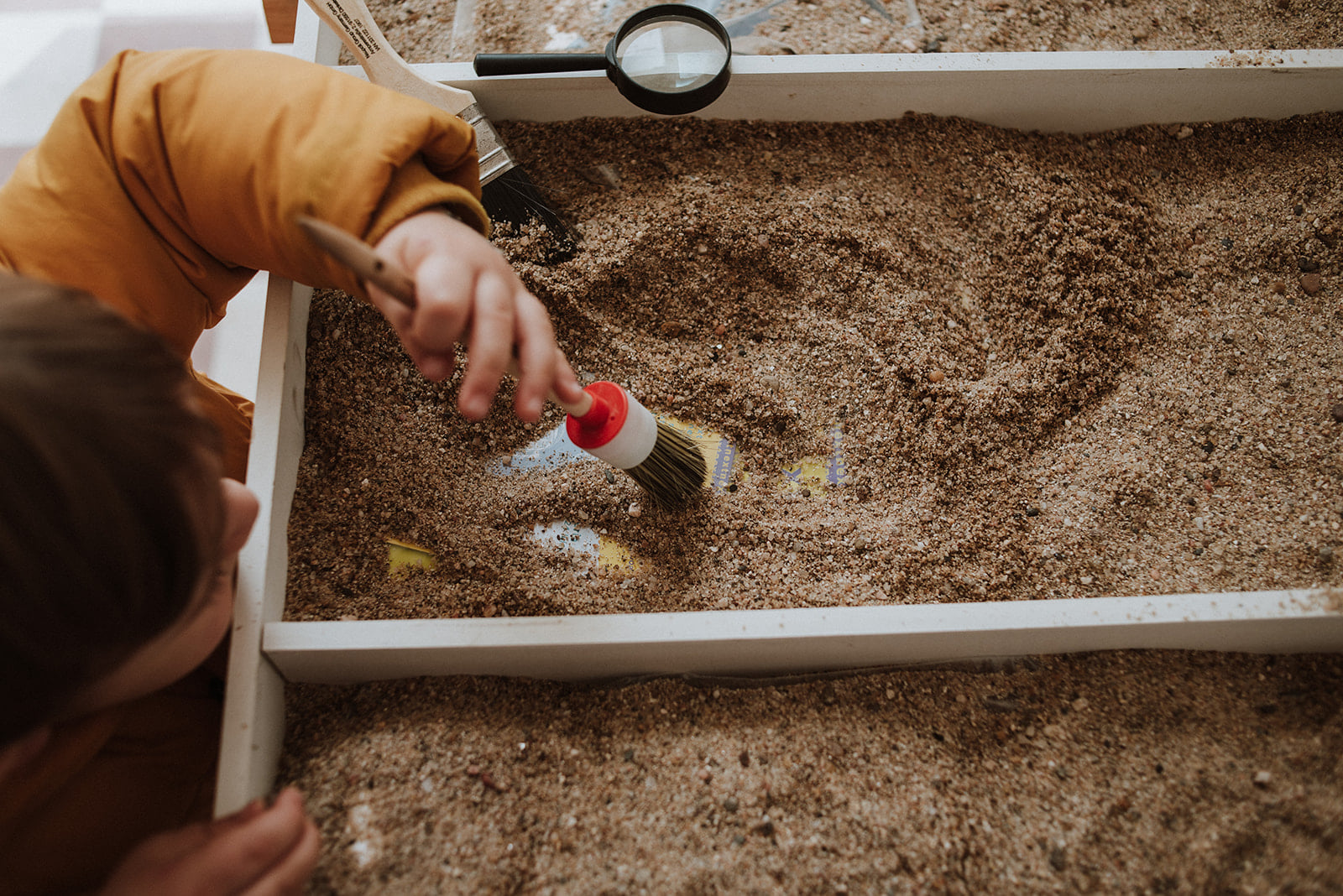
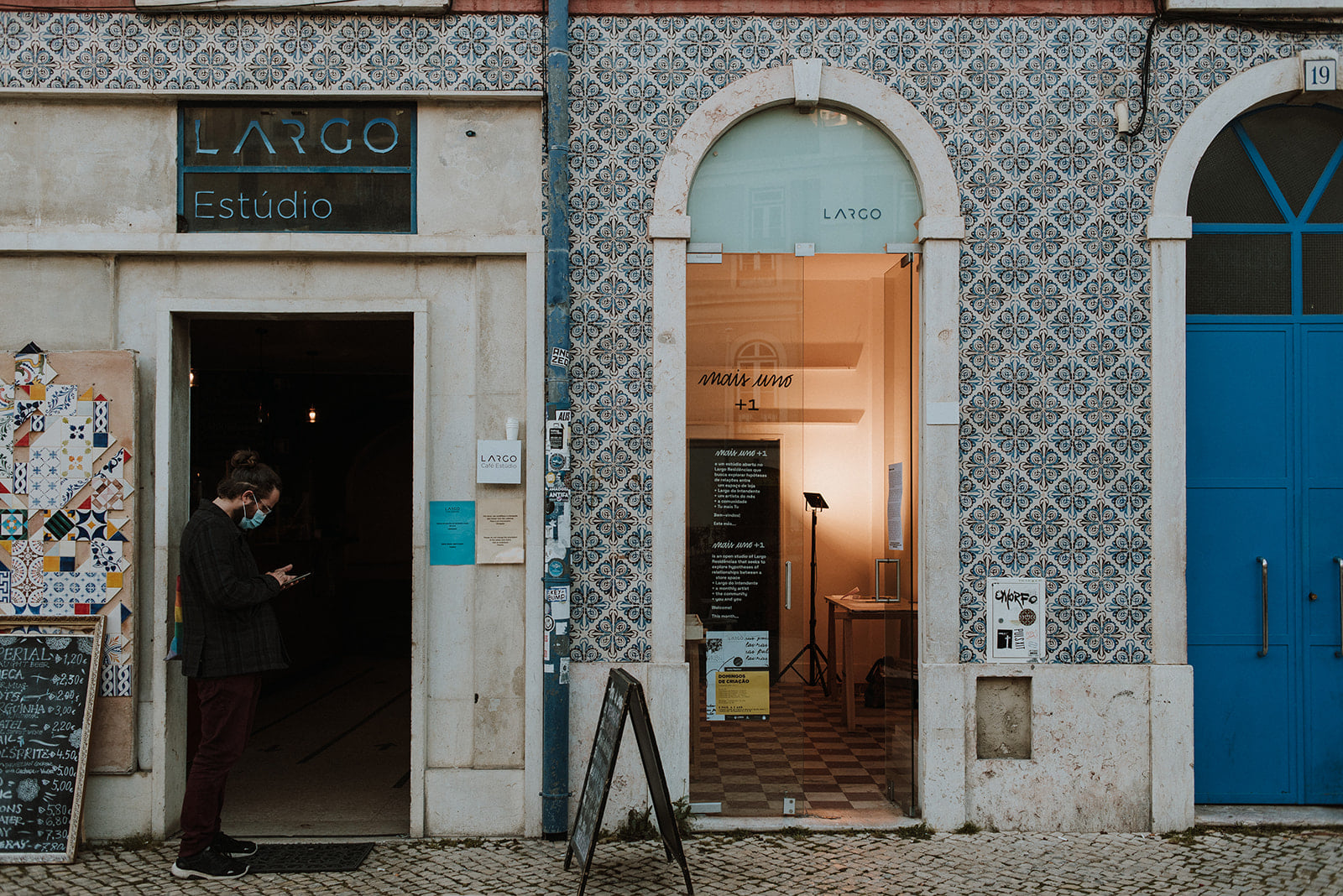
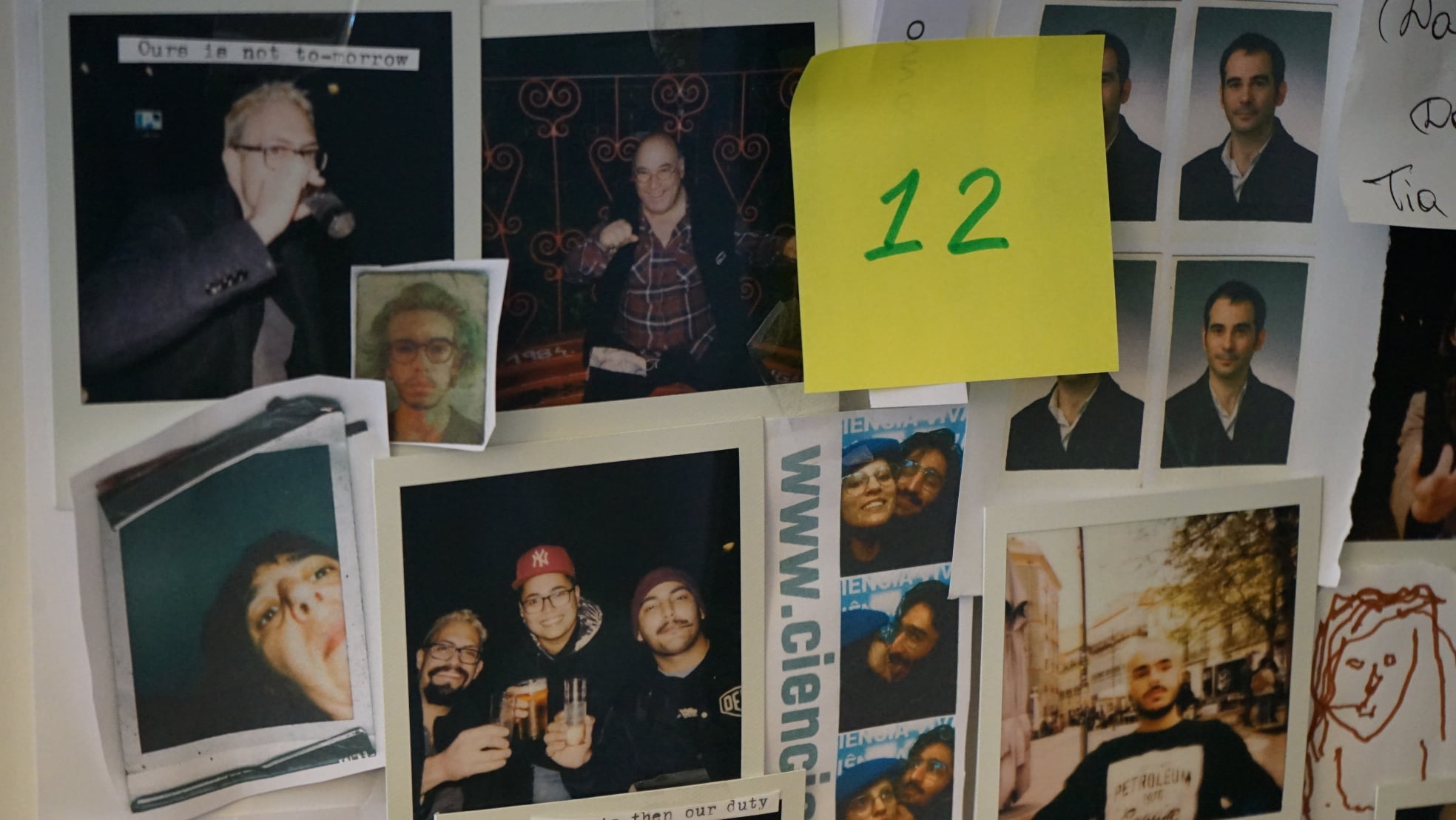
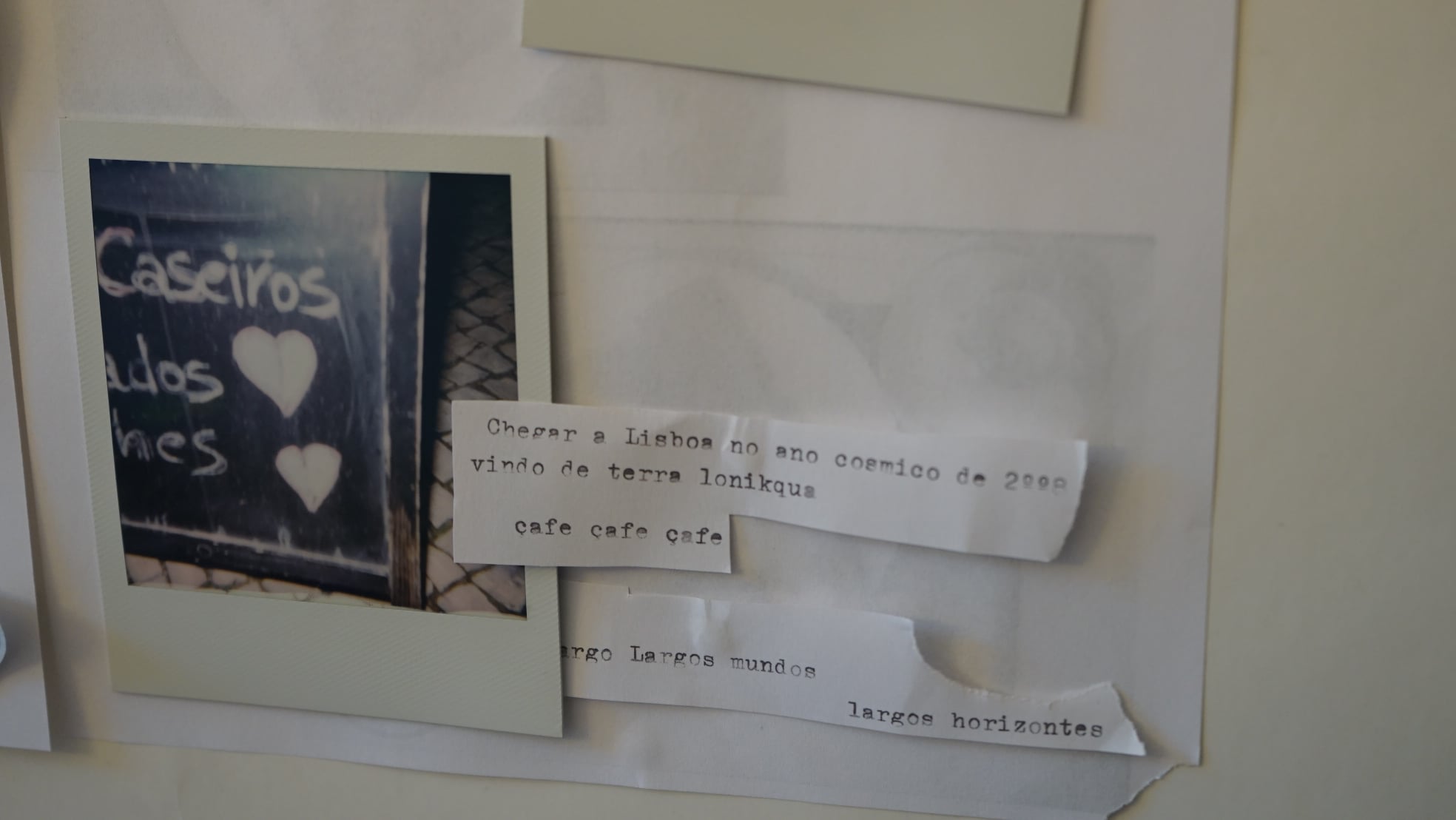
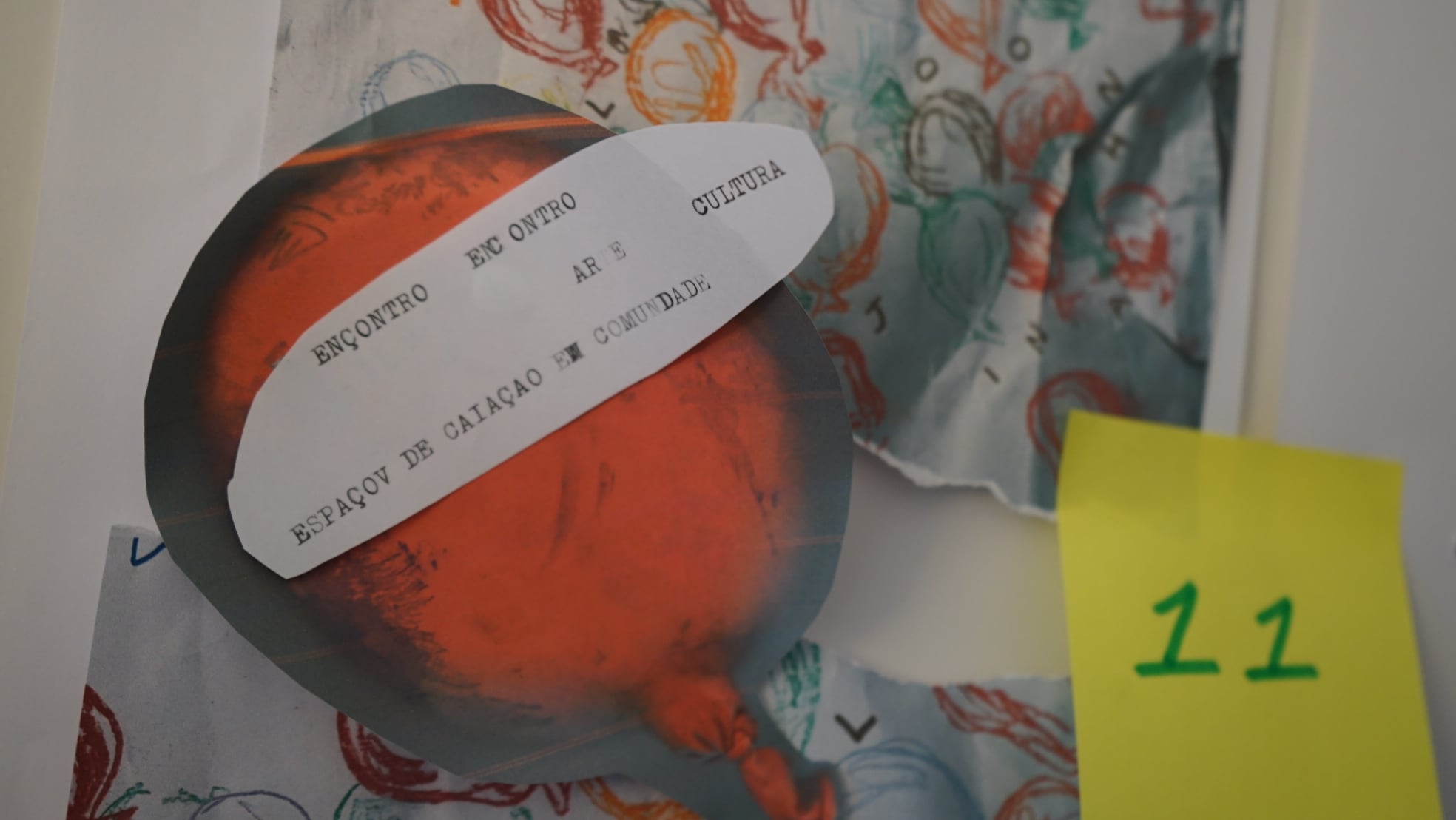
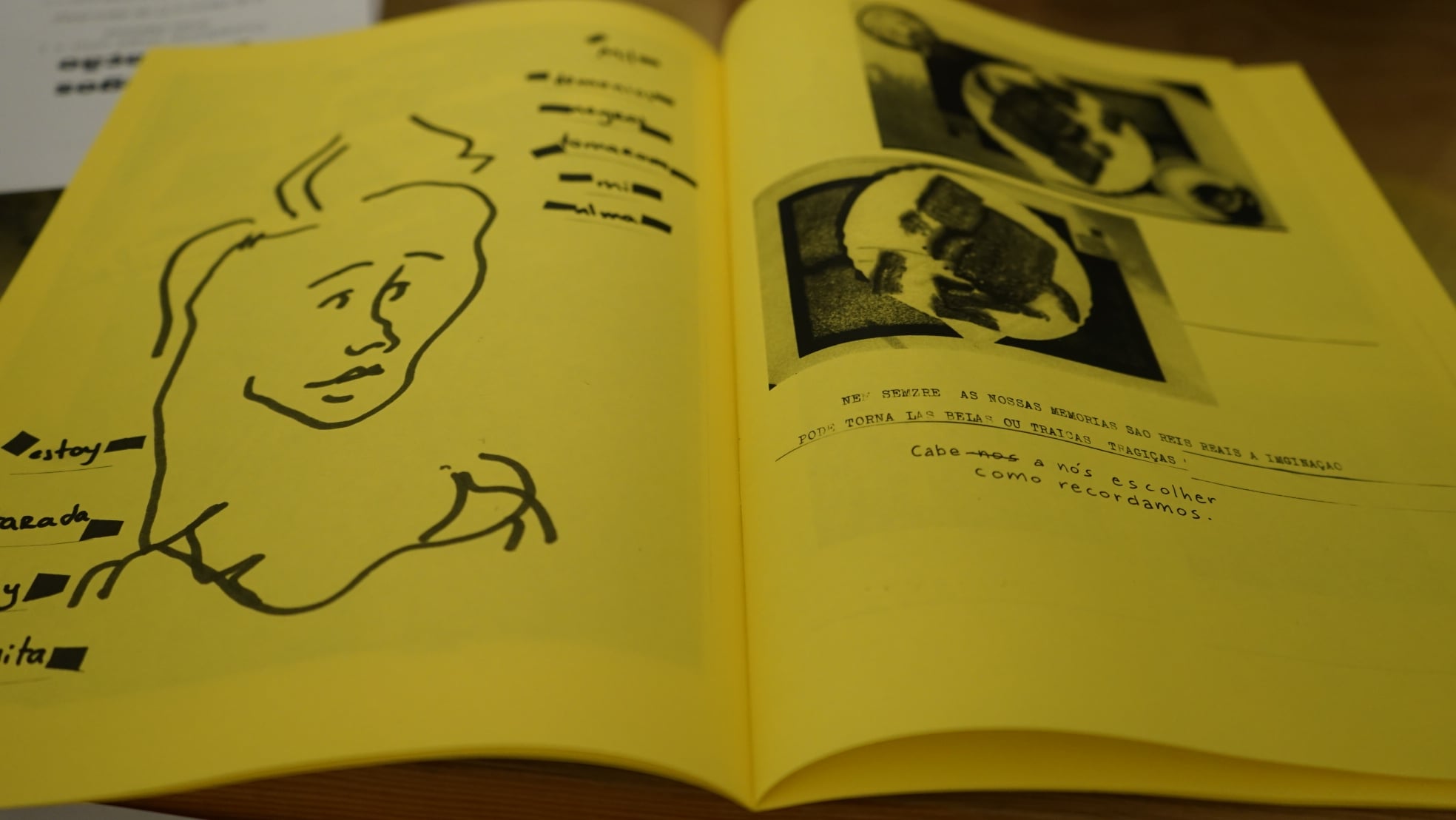
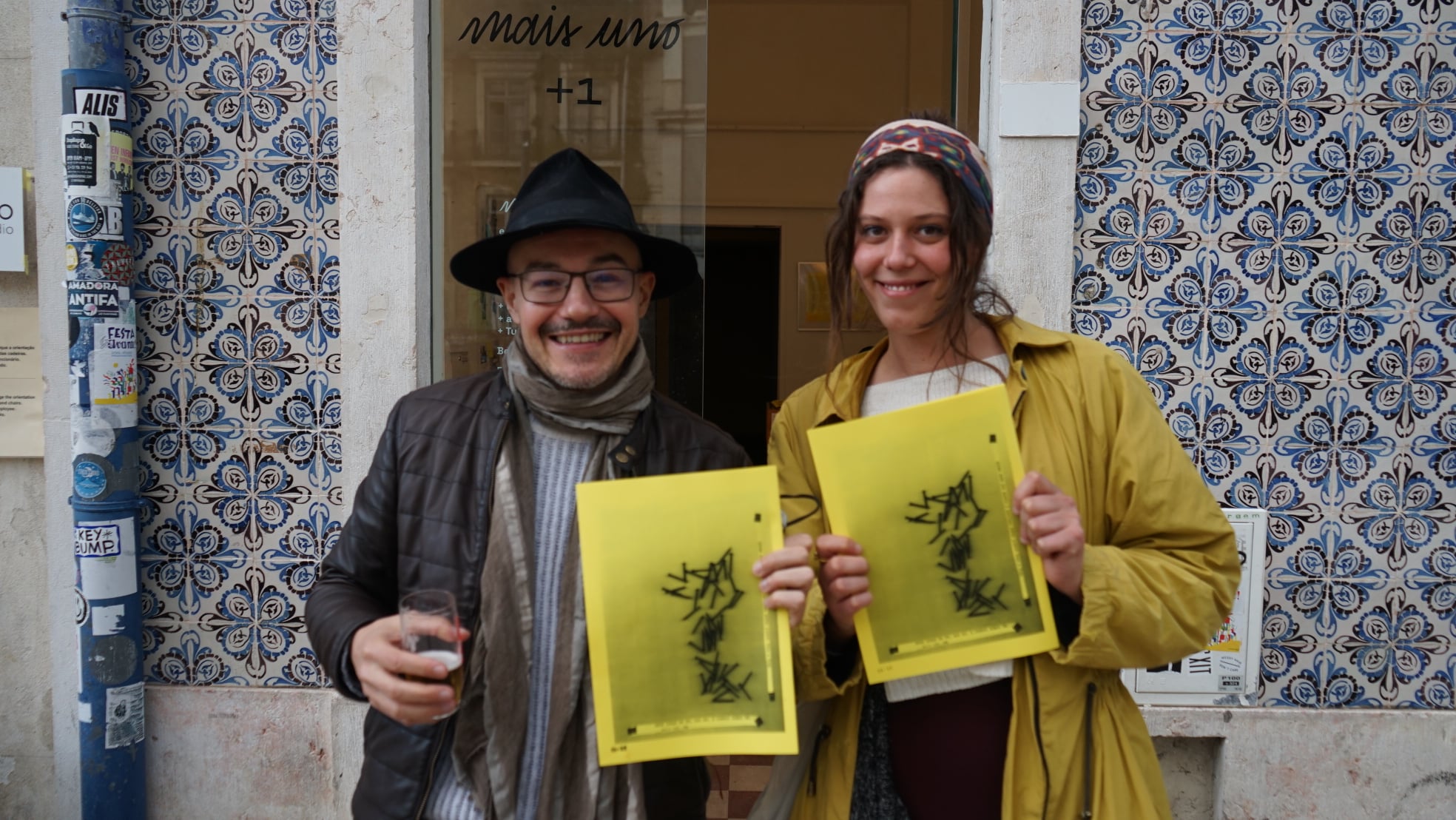
Photography: Nicole Sánchez, LARGO Residências, and Zé Luís C.

